#my issues with it stem from how they adapted it from book to film not with casting or the actors
Text
Just watched the School for Good and Evil film and honestly I'm disappointed.
#leo's stuff#so so disappointed#those books were my childhood and uh well the film was... 🧍♂️#my issues with it stem from how they adapted it from book to film not with casting or the actors#sge#but come on...#so many moments we could've had in there that we just... didn't#like the scene were Sophie literally MURDERS someone? the talent competition!#the scene with the thorns. the gargoyle. agatha's dress with the orchids. KIKO AND AGATHA ACTUALLY BEING FRIENDS.#NO PROF SADER? who is described as being like a FATHER to Agatha??#and so many more things I could mention#like I get you can't adapt everything bc infodumping WHATEVER#but they combined lesso with evelyn sader which was... weird
8 notes
·
View notes
Text

Dune: Part Two Review:
Dune is a hard book to make into a movie. The history of trying to make it into a film (and even the making of it into a film) show that. It is an incredible book with a lot there.
It was really wise for the recent film to split the book into two parts. Both did a fantastic job giving the audience all the information that was needed while maintaining a steady plot. The visuals are fantastic too.
Part Two does stray away from the book more than Part One did, which makes sense with the sheer amount of time that passes in this part of the novel. The changes were mixed. Some were great and allowed more agency to the characters, particular the women of the story. Others downplayed some of the ethical issues presented originally by Herbert in ways I wish the film had done more with. At the same time, the film does raise a lot of good ethical questions. It also is a thinker, which is why it has taken me some time to figure out what I want to say and how I want to say for this movie.
It is difficult to compare a film like this to such a great novel that it stems from. Herbert’s Dune holds a message that is really timeless. Dune: Part Two speaks more to today. Whether that message continues to resonate is something only time will tell.
This leads us into how religion is approached. In the novel, the young Fremen are attracted to Paul for his connection to their beliefs. In the film, they come to him more for his initial rejection of what the older Fremen teach and believe. This feels like what we are facing in our Faith at this time, for both good and ill. Because of this approach, I’m not sure there’s a lot Dune: Part Two has to add from a Gospel according to Superheroes perspective. Perhaps in examining this film more I’ll change my mind. Only time can tell.
Overall, I’d say this is a good adaptation of the book, and an entertaining movie on its own. I suspect like others I still say the novel is the better of the two. The great thing, though, is you can always just look at the film as one of the possible futures Paul in the novel sees. Even if you don’t like the film as much as the book, it is still great and definitely worth your time, whether or not you were already a fan. I’ll look forward to seeing the next parts in this franchise.
Review:
Overall: ⭐️⭐️⭐️.8/5
Gospel: ✝️✝️/5
0 notes
Text
The makings of greatness, or why, as a ride or die Treasure Planet stan, I’m glad there’s no Treasure Plant 2
You ever see somethings that makes you unreasonably angry? Yes I understand exactly what I’m saying, and how that indicates that my emotions and opinions on this are exactly that. Opinions. There’s a good chance I have some objective truths mixed in, but that does not make my opinions based on those truths truth. If you disagree or have different tastes or opinions or interpretations, cool, let me know! maybe you’ll change my mind. That being said.
The plot synopsis for the Treasure Planet sequel makes me angry. Not like, actively so, just annoyed enough to be in a bad mood. And now you guys all have to be in one as well. Why?
Reason 1, and probably least important: Disney sequel syndrome.
Ok so Disney sequels aren’t inherently bad. I’ll stan the Aladdin sequels to my grave, who knew Cinderella could world build, obligatory Rescuers Down Under (the first one was better) blah blah blah.
But there is an inherit problem with sequels in general, and that usually has to do with cast and crew. An original piece of fiction has to grab the audience yes, but there’s also freedom in that. Media touches people in different way. The worldbuilding can mean more to some than others. Some are in it for the animation, or the character developments, or relationships. What connects with one person won’t connect with another. The problem with sequels is that different people who worked out the original material might and usually do not work on the new. And those new people are already working on that new material with their own personal lenses and experiences and interpretations coloring the old. The reason sequels (and remakes, and big budget presentations of other materials like books into movies) tend to bomb hard is because you are essentially being forced to accept someone’s fanfiction into the canon material. Usually, there’s a pretty strong correlation between more successful franchises/extension material, works staying true to the core material, original crew working on the material, and the enjoyment of the audience.
And sources say very few of the original crew remained. Some yes, but mostly voice cast. Even worse, TP2 was a DisneyToon production, not even a mainline feature. Now I’m not saying the new people weren’t talented, or passionate about the project, or were lacking in experience. It doesn’t really matter if any of those things are true or not. It’s the warping of their personal lenses I don’t trust. Fanfic I can disregard, meta I can disregard. This would have been canon.
And reading the Artbook makes is abundantly clear that the parts that touched me personally would have been missing. The very core of Treasure Planet for me was the relationship between Jim and Silver (and their exquisite animation budget). However you choose to interpret that relationship, you can not deny that Treasure Planet is a powerfully emotionally romantic movie. It’s quiet moments and emotional resonance shaped my views of intimacy with a sharp and fine touch. Silver and Jim’s bond is as undeniable and powerful as it is compelling and awe inspiring to witness unfold.
And a lot of that is owed not only to the voice acting of Joseph Gorden-Levitt (Jim) and Brian Murray (Silver), But to animators Glen Keane and John Ripa, who were the head animators of Silver and Jim respectively. Not only did Gorden-Levitt and Brian Murray deliver stunning performances, but made sure to work together and jointly play off each other in ways most voice actors don’t have the opportunity to do. And the Masters Keane and Ripa took an already stellar and carefully crafted vocal rapport and took it one step further. I highly recommend the Artbook as a good read, both Keane and Ripa talk about the journey of discovering who Jim and Silver were with delight, acting out entire scenes together using their own body language to build the characters together, using the same animation reals to animate, tag teaming in and out of the program rather than do it separately, becoming so attuned with their characters attitudes and mannerisms that you can tell they poured entire pieces of themselves into Jim and Silver.
I’m not saying the Sequel would have been inherently bad because it’s a sequel, or because a new crew worked on it, but I am saying I wouldn’t trust it with a ten foot pole.
Reason 2: Thanks I hate it (I’m saying it’s inherently bad because the plot is bad and I hate it)
I’m sorry for the length, but for you to really understand just how bad this is, I actually have to pick through every single line and tell you why it fails critically at some junctures and where it would be so simple to fix. For those of you who were unaware that there was a sequel in the works at some point, I’m pulling these quotes pretty much wholesale from the AnimateVeiws article Buried Treasure: The ill-fated voyage to Treasure Planet 2, specifically the interview with Jun Falkenstein who was set to direct the now canceled sequel. Spoiler warning, I guess?
So, from the begining
“The sequel was to pick up where the first film left off, with Jim Hawkins going to the Royal Interstellar Academy. At the Academy, he is a hotshot “natural,” but he doesn’t follow the rules very well.” - Strong start but then dropped the finish. I think the interstellar academy would be a very compelling starting point. I see no fault in it at least, it’s a good opportunity to world build. Clemence and Musket like to make a point that Jim was crafted to connect with the emotionally wounded and distant youth in a age of divorce, so showing what happens when that youth hikes up their britches and gets to work can extend on that theme aaaaaaand you dropped it. Dropped that strong start. Yes, Jim was more than a bit of a bite back rebel in the film, but that was a reactionary response to the bad place he started in. Jim was abandoned, and tied his self worth into that abandonment. His kickback against society was a reaction stemming from an inability to see his personal worth and any sort of future he could craft from it. He outgrew this, his very character development was about this in the film. His character arc was about realizing his inherent worth, embracing a sense of confidence and learning what he could do. Even disregarding that, bonus material outside of the film shows that Jim has a very strong sense of respect for Captain Amelia, her military career, and the hard work she put into it, and he’s there on her recommendation. Why would he act out in this? He is a natural yes, but the film shows he’s incredibly sharp and intelligent, if unlearned, and more than ready to learn given opportunity.
“Hence, he gets off to a shaky start – especially with his classmate Kate, who is very smart and has a type A personality. Kate’s father is Admiral Blake, the Commander of the Navy. Jim and Kate vie for top of the class but have very different skills.” - So building off this to fix the problem before. I guess the dynamic they are going for is something like “the kind of a jerk hotshit hotshot who’s got it all figured out and the straight laced rule fallowing stick in the ass rival”? I’m not apposed to to a rivalry, but lets tweak this, given how “hot shot natural jerk” isn’t really where Jim settles at the end of the film. Jim is a natural talent, who excels under tutelage, but more importantly, he has practical experience. While the time period spent on the RLS Legacy is not defined, they do sail to a deep and unexplored part of the galaxy, probably well outside of regular settlements, so no small distance, though Jim is young enough that a very long period of time would be noted in physical growth. Given comparisons to classic nautical sailing of the source time, months, perhaps up to a year? That’s a long time to spend, learning the rough and tumble basics, tying knots, experiencing food and water rations, extreme temperatures, playing with the rigging and mechanical aspects of the boat. Jim knows what it’s like to actually sail. Meanwhile, this is the Royal Academy, who probably takes in upper class second born children and pumps out military accolades for well learned mathematicians and strategists. Jim doesn’t fit in because he can visualize, he can think outside of the box, he can weld a damn engine to a hunk of shrapnel and ignite it freefalling against a metal hellscape and outrace a boat in a high adrenaline situation. He adapts where the other’s frantically look through their notes for the answer. Worse yet, he’s poor and not classically educated. Make it a class issue. In this aspect I do like Kate. Being the Daughter of the Commander of the Navy, she probably has a very technical and far more expansive understanding of navel ships, particularly the running of them. In this way Jim and Kate are perfect foils. Jim representing the poor, instinctually and practically knowledgeable crew, and Kate the upper-class, technically knowledgeable command, a dichotomy representing the haves and have nots in their skills, experiences, an class.
I don’t want to post a picture and break the post, but I do love Kate’s design. I do recommend looking up the article and checking it out. that being said, being a feline species, they messed up not spelling it Cate.
“Captain Amelia is dean of the Academy, which has a brand-new vessel: the Centurion.” - I… why, why is Amelia the dean? Additional material shows that Amelia broke ties with the military because she didn’t like their rule stickling ways and red tape. Why would she want a red tape position? She helped with a war and then bailed first opportunity to become a freelance captain so she could fallow her own rules. Even if you don’t know any of that additional material, you do know that she is a freelance captain. Why is she dean? what happened to the old one? Are they dead? Did DisneyToon kill them? Did Disneytoon kill the old dean?
“Designed by Doctor Doppler, the Centurion is the fastest ship in the galaxy.” - HE’S NOT THAT KIND OF DOCTOR!
“B.E.N. is its pilot”. - NO
In all seriousness all three of those statements show a serious problem, in that none of those characters are in fact those things. Amelia I’ve already explained. But Doppler was a debatably youngish bachelor with too much money who was fascinated by astronomy specifically and who suffered from ennui. And BEN was a navigational unit, so maybe it makes sense for him to be a pilot, but why is a robot who was functioning under a galaxy feared pirate for who knows how long given any kind of agency over a brand new incredibly important ship? These decisions were probably made to incorporate as much of the old cast as possible, to not exclude fan faves. But any decision that makes BEN a prominent part of the plot and thus gets more screen time is a BAD one.
“The pirate Ironbeard desires to commandeer the Centurion. This ruthless villain is relatively all iron – almost nothing of whom he originally was, inside and out, is left.” - On the one hand, I have a weird feeling that this would somehow violate the 30-70 rule. Buuuuut on the other hand, the Artbook does describe the decision making process of what and how was mechanical on Silver (my favorite tidbit was the wheel on his head representing his constant thinking and assessing) and states that that they in a way represent the pieces of humanity he gave up looking for Flint’s Trove. Extending that to a pirate who has given up everything could be a powerful thematic tool if used right (or intentionally)
“He leads a group of pirates to hijack the Centurion while Jim and Kate are aboard.” - ok, yeah, I’ll buy that. If they are butting heads constantly, I could see them sneaking off to the new piece of hardware to one up each other on who knows their stuff, or maybe bond over wanting to learn about the said new tech and being frustrated with restrictions.
“The Navy can’t catch the Centurion, due to the vessel’s speed and armor.”- sure
“Jim and Kate escape the Centurion. Jim decides he needs a pirate to help catch pirates. They find his old buddy Long John Silver in the Lagoon Nebula, where he is running a smuggling ring. “ - So what Jim just goes “I know just the pirate to help us” and then finds him? That journey of itself deserves it’s own movie, anything less is a disappointment. Alternative. Jim and Kate escape onto a particularly lawless planet. Jim has some tricks to keep them safe and fed, maybe he even excels in ways he’s been straight up stop gapped at the academy. Maybe his knowhow is appreciated by others who society also rejects. But Kate is a frustrating fish out of water, getting offended and worked up over things that are big deals to an average citizen but not criminals and pirates. But such reactions are putting them in danger and she needs to get perspective fast. It’s plausible maybe that Silver tracks them down through interesting rumors, but more than that, let it be fate. Neither having any idea the other is there till the second they see each other. Bonus points if Jim and Kate get in a bind and Silver is the leader of the harassers. Better yet lets add some thematic mirroring not only to the scene where Silver saved Jim from Scroop, but directly contrast it to the scene where Silver doubled back and down against the notion of caring for Jim when called out before the mutiny. *kisses finger* Touching and hilarious.
“ Silver agrees to help when he hears about the Centurion. “ - Silver agrees to help when he hears about the Centurion without Jim even having to ask. Storywise, lets make some kind of deal over how Jim, an upstanding enrollee of the academy, apparently is chummy with a pirate. Tension doesn’t just have to be external, and Kate is the daughter of the Commander of the Army. Maybe she’s recognized and this gets them in trouble. Maybe Kate has issues with her identity outside of her father’s career and need to learn a lesson about being outside of a rigid social structure?
“Jim and Kate receive a tracking signal from B.E.N. – who is currently hostage aboard the Centurion – and follow via Silver’s creaky vessel. They discover the Centurion docked near the Botany Bay Prison Asteroid. “ - While being the fastest ship yet is a good excuse for wanting it to get stolen, my suspension of disbelief breaks a little at any ship, let alone a creaky little pirate vessel, catching up to the fastest ship yet, or the tracking signal being the only way to track it to a guarded prison. Seeing as how I’ve written BEN out of this scenario lets fix it. After the events of the movie, the Royal Military swoops in after to confiscate the debris of Treasure Planet. For those in the know, canon lore states that the Planet was a giant computer, and it and the map were the byproducts of an ancient and advanced civilization. Studying the debris led to the Centurion, notable not for it’s speed, but for it’s stealth. It can cloak itself. Which is why no-one can find it. Meanwhile Silver lets it slip that he snagged the map from it’s pedestal as they escaped the planet as a souvenir. (handwave why the portal was still open with a “the whole thing was exploding, the computer froze). The map is able to track the remnants of said planet, aka the Centurion, meaning Silver has the only means of tracking the cloaked ship
“Ironbeard is using the Centurion to disable Botany Bay’s security systems. Jim, Kate and Silver sneak aboard the Centurion, where Silver reveals to Jim that he wants to take the Centurion for himself. He asks Jim to join him.“ YES. YES YES YES YES YES YES! Understanding that Jim’s decision to not go with Silver in the first movie is key here. He rejected Silver’s offer the first time because Silver had shown him he had intrinsic value, and Jim finally felt that the natural gifts he had were worth cultivating, that he did have the chance to explore who he could be on his own terms. Jim was comfortable being on his own, because he felt capable. Now, Jim and Silver bring out the best in each other, and the time apart has done them harm. Jim’s strings of social rejections are starting to fell like a glass ceiling he can’t overcome, and is finding more and more comfort in being a big fish in a pirates small pond, and the emotions of of being wanted that come with Silver is a powerful drug. But it’s a one way ticket away from any opportunities he could work towards, not to mention his barely repaired relationship with his mother. Meanwhile Silver has been slowly slipping back into the colder, more selfish self he was, a necessity for his lifestyle, and doesn’t want to loose his connection to Jim and what Jim brings out in him, but is still far enough gone to make the offer and try for the boat anyways, even if he knows it’s not what’s best. It’s an emotionally compelling decision. You want them to say yes, you know they shouldn’t
“Kate overhears this and is horrified, especially since the two have, of course, started falling for each other during the adventure.” - Hate. this I hate. Leaving shipping to they way side, what’s that “of course”? why do they have to fall for each other? Why the Disneytoon sequel love interest? I have a feeling her characterization would come at the cost of it. Why can’t they be rivals? why can’t they develop a mutual respect outside of attraction? Why can’t they both learn an individualized lesson about finding their own place in the world outside of social constraints as foils without macking? I hate this concept. Kate overhears, and is horrified, because Silver is a Pirate which is actually in universe get yourself hanged offense, and Jim is considering this, and they are going to steal a VERY IMPORTANT BOAT and and leave her stranded in a dagerous prison, and are making an objectively morally bad decision.
“Ironbeard discovers the intruders, charging into a fight in which Silver is injured. Meanwhile, the other pirates throw down ladders to the prison below, allowing swarms of elated prisoners to climb up into the ship. Silver, Jim, and Kate exit the Centurion amidst all the confusion. However, Ironbeard shoots down Silver’s ship. They plummet to the prison asteroid below, crash-landing” - cool. Drama. But for my purposes, lets tweak it so Silver isn’t injured yet. But I really want to emphasize that this attack does not interrupt before Jim can react to Silver’s offer. Even something as tentative as “I’m not sure” has consequences. None of this “misunderstanding” BS.
“ Kate is angry at Jim and storms off. “- again, make it clear that Jim showed a real chance of agreeing to steal the ship. if she’s angry before he had a chance to answer that’s contrivance for drama’s sake. Give her a reason to be mad
“ Jim is about to blow her off as well when Silver tells him to give her a chance. He reveals a part of his past through a flashback, when a young (non-cyborg) Silver screwed up a relationship with the love of his life – a decision which directly led to his life of piracy. “ - nope. nope nope nope . I’m gonna put a big old * here because this is reason number 3 why I hate this potential movie, and I will get to that believe me, but here’s me, putting a pin in it. That being said, have Silver selfishly try to double down on getting Jim to join him in a three way argument instead. This is the conflict of the film. Kate, who was learning to grow outside of the strict restrictions of her life and do her own work, make her own way, is being rejected. She is as morally repulsed as she is hurt that she wasn’t included, and hates herself for that hurt as well. Jim is torn between the freedom of what he could be after the academy paired with the strict social constructs around it, and the freedom of a life “full of himself and no ties to anyone” but running from the law and the two friends they represent. Silver is the aggressor here. He likes Kate, he does, but he loves Jim and only has one place in his heart, and has spent his life being selfish. There’s already a crew on board, and Iron beard is hooked into the Centurion. With having the only other means to navigate, they take down ironbeard, the rest will surely fall in line. This is paydirt. A fantastic ship, a bloodthirsty crew, and Jim.
“Silver has a very dangerous cargo with him that he had been trying to smuggle and sell for a fortune, which has the power of a neutron bomb. Jim, Kate and Silver reconcile and work together to fix Silver’s ship and prevent the Centurion, filled with the most evil pirates in the galaxy, from going on an insane robbing-and-killing spree. At the last second, Silver reluctantly gives up his “retirement fund” in order to destroy the Centurion, with Ironbeard and all the pirates on board.” - this entire section needs rewritten. That’s a mcguffin Silver put it away. I have retconned the mcguffin to be the old map, so that is now moot. Now to not blow up the ship. Afterall, Silver and Jim have both already overcome what Treasure Planet represented with it’s destruction. Rather, B plot
If we are that desperate to have past characters in, let’s have Amelia and Delbert back home. When the Centurion is captured, Amelia immediately volunteers to fallow, feeling responsible for Jim and secretly pining for some adventure. Delbert feels the same, and he to a bit of an adrenaline junkie after the events of the first movie, but they have the children to think about and only one can leave. Delbert is the one chosen to help by the navy officials searching for the Centurion. While Amelia bickers with the Admiral Blake over his pragmatic but emotionally distant decisions over the situation of his missing daughter, Delbert is an astronomer, and is blah blah blah science meta, fallow the flashing and bending lights around the cloaked ship to find it. As in Delbert is helpful. Amelia in a reflation to Admiral Blake, is torn between her family and commandeering her own ship to help. Blake is frustratingly headstrong in his decisions, and the script makes it seem like that emotional distance is disinterests, but reveals to the audience that it incorporates a great deal of suppression of his anxieties and worries over his daughter, and trust in her abilities, though he has issues expressing this pride to Kate herself. Amelia, Delbert and fam make what is probably a poor decision in commandeering a ship and leaving on their own to track the Centurion, the navy hot on their heels.
Back to A plot, the navy is approaching. Jim has to make a decision. He is the only one who knows how to unmask the ship using the old ones tech without training, as it’s based off the map. While Kate and Silver are distracting iron beard, he has to either steal the ship and sail off, or uncloak it for the navy. Iron beard is taken down, but not without Silver getting injured. Jim decides that Silver’s life is worth more than anything, and after agreeing with Kate that she’ll commandeer a doctor and wont let Silver die, uncloaks the ship. The Centurion is retaken in a blaze of naval glory that is the action climax. The pirates fight back up are over run. Maybe Kate gets taken hostage as the Admirals daughter, as an opportunity for a resolution with her arc as Blake’s distant daughter, though obviously said resolution comes at her showing her abilities in taking care of herself and the practical skills she has learned.
“Silver again parts from Jim and Kate, telling them to take care of each other. A few years later, Jim and Kate graduate with honors, while a proud Silver secretly watches from the shadows, smiling” - Boooooo. Kate and her dad make up, and she challenges him that she’s going to one day Captain the Centurion, with him understanding that she needs less a mentor and more an emotional support while she works her way up the ranks. She invites Jim to be her first mate, to which Jim accepts as a navigator, (a thing I’ve pointed out to be his real strength in another post). But to Silver, who has been “pardoned” for his part in retaking the Centurion, the movie hinting that he to would be on the eventual crew there I fixed it fic to come I s2g.
yeah there’s a lot of good there, but it’s so easy to fix the bad it’s frustrating. which brings me to
Reason 3: that little pin
“ Jim is about to blow her off as well when Silver tells him to give her a chance. He reveals a part of his past through a flashback, when a young (non-cyborg) Silver screwed up a relationship with the love of his life – a decision which directly led to his life of piracy. “
Nope nope nope I’ll tell you why.
First of all, sources like the artbook say that Jim is so Important to Silver because he’s the first person Silver has ever let become important. he’s specifically stated to have no family, never married, no children. And that’s something he cultivated actively. His life of piracy, his metal limbs, his loneliness and moral failings were all gleefully accumulated for one reason and one reason only
Treasure Planet.
Treasure Planet was the great love of Silver’s life. It was a lifelong obsession. It destroyed his body, took his youth, his opportunities and nearly his life. He broke Jim’s heart over it.
And he let it go. For Jim.
And Jim understood this
This is the crux of treasure planet’s very themes. This is where Jim found self worth. Another person finally looked at him and said “you matter, you matter more than anything. I like being around you and I choose you first.” and it made Jim realize he’s someone worth choosing.
The treasure was EVERYTHING to Silver, and Silver let it go, for Jim.
That one line there, attributing the start of Silver’s fall to a girl? that actively retcons the entire theme of the previous movie. IT rewrite the emotional linchpin of Silver’s sacrifice of the gold. And actually fuck that. right into the ground. I do not accept. I do not pass go. I refuse. Fuck you non existent movie. That makes me mad. every single time. Hate I shall never let go.
No
#Disney#Treasure Planet#Jim Hawkins#long john silver#john silver#long post#meta#god I hate this non existent movie#This outline is the closest I've ever come to writing spitefic and its still up in the air#Treasure Planet is such a romantic movie and you come into my house and try to shred the emotional core and themes by recontextualizing?#fuck off#Fuck I love Treasure Planet#sequel synopsis can die in a fire tho
327 notes
·
View notes
Text
Some of my favourite female characters in fiction
This list is not exhaustive and while I do have other characters that I find charming and that I love, I have noted these characters because in my opinion, they have struggled and/or there is a certain analysis to their personalities.
Please take note that some of the characters are not morally good or have done questionable actions. This is not to discuss or say they are role models, but rather to write up what they represented, their role in the story or simply their personalities. I’m not here to justify the character’s actions.
Remember that a well-written characters do not have to be morally good.
Also, a lot of them are from memory and the analysis aren’t well-structured.
Let’s dive in:
1. Daisy Buchanan from The Great Gatsby
Daisy, in my opinion, is incredibly misunderstood and unjustifiably hated among the readers. Her betrayal to Gatsby is indeed vile and it did upset me, I definitely think that she is materialistic, shallow and hurtful.
“I hope she’ll be a fool—that’s the best thing a girl can be in this world, a beautiful little fool.”
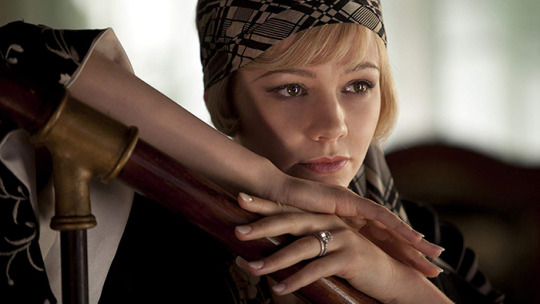
Daisy did shit on Gatsby [trying to avoid spoilers here].
However, I do like to note that I think part of her materialism and shallowness is because of how women were in the 1920s. They did not have any freedom or agency. To Tom, she seems to be a trophy wife for him to keep; and to Gatsby, he only liked the idea of her, he wasn’t in love with her. To everyone around her, she was an item, a beautiful doll to be possessed, rather than a person. I think that’s why she turned out like that.
She's materialistic because men around her sees her as an object. Nonetheless, Daisy is still “careless” and hurtful; and I think this stemmed from the life she had led that were a compilation of choices that were made for her. Her betrayal towards Gatsby is what makes her character rather disappointing to most readers. The whiteness in her dress as described in her first appearance? It’s not innocence, but rather a void and jadedness.
2. Neon Nostrade from Hunter x Hunter
Yet, another girl in our list that loves to be hated by the fandom. Though honestly, most of her haters are Chrollo and Kurapika stans who gets jealous because Chrollo got to hang out with her and Kurapika works under her. Also her repulsive hobby - although this is actually what makes me like her.
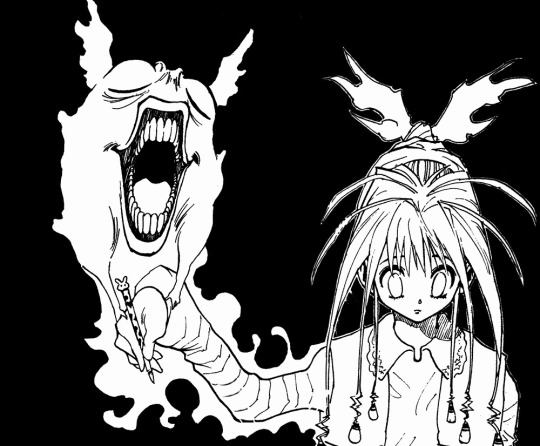
I have addressed this in my other posts before, but let me just copy and paste them (and modify a bit):
Her upbringing and exploitation by her dad makes her materialistic and emotionally detached. This materialism and detachment is manifested in the form of her hobby as a dead body parts collector. But other than that, she’s really a normal girl, just sheltered and spoilt. The money she spends are even from her talent Lovely Ghostwriter, her father will be nothing without her. So I don’t see an issue with her spending them on shopping etc.
In fact, I would argue that she bathes in materialism to fill the emptiness that she has. Her father is more concerned with her ability and power, she has no friends and is guarded 24/7 by employees.
All the times she threw tantrums and the way she talks… it’s a different speech pattern altogether when she interacts with Chrollo - which may suggest that the whole spoilt attitude is exaggerated to gain attention from a father who is indulgent in terms of material gifts, but not in terms of affection and time for her.
When Eliza cried, she was willing to forgo bidding the auction physically. Yes she did not care about the bodyguards because she is more focused on the living and the present (Eliza) than the dead.
The reason why she didn’t seem fazed when Dalzollene and the others died is because a) they were her bodyguards, it’s their job to put their life on the line to protect her, b) she mentioned to Chrollo that her fortune-telling is for the living, she likes to live in the present and doesn’t believe in the afterlife.
Neon is more focused on who is alive, rather than the dead (which also represented by her hobby of dead body parts collecting). She focuses on the present, unlike her clients who likes to know their future or people who dwell in the past. Kurapika on the other hand, is the complete opposite. He dwells on the past and likes to focus on his dead clan rather than the present times with his friends (which is completely understandable).
Another significance is that her fortune-telling ability is very useful and helpful, she says that she wanted to make people happy with it; but however, it is commercialized and used as a means of power (knowledge of the future = power) by her father and pretty much everyone around her. Just like how she objectifies dead people by collecting their parts, the people around her sees her as a tool due to her fortune-telling abilities, rather than see her as a person. Even Kurapika chose to get employed under her, for his own agenda (he is bound to meet dead body parts collectors at some point).
She treats people like objects because people see her as one.
Of course, collecting dead body parts is a pretty fucked hobby; but what she represents and her role as a minor character is what makes her an outstanding minor female character in the show.
Yes. She has traits that are not your typical role model, but neither are other hxh characters. She’s not independent, naive, can’t fight, in need of saving, uncaring at times and spoilt. She is far from so-called “strong female character” that we often look up to. She is a character with bad traits which is a result of being a victim. But that’s what makes me love her as a character in hxh. It reminds us that there are girls out there who has lack of freedom and control over their own fate; and their only way out is through materialism and detaching themselves from people.
In fact, she might be even relateable to some people more than other female characters because there is vulnerability in her character.
3. Hua Mulan (Mostly the Chinese 2009 film, though the most well-known is the Disney 1998 animated film)
There has been various adaptations for this character, with the Disney Animated version being the most prominent.
However, my favourite one is definitely the Chinese film Hua Mulan: Rise of A Warrior (2009). It portrays the horrors of war and the suffering it brings, nationalism, camaraderie among the army - all while giving us the admirable Mulan climbing up to the ranks of being a war general.
I highly recommend this adaptation. I know the Disney Live Action 2020 version did not receive good reception, and we honestly did not need one because this 2009 Chinese film does the job well (I like their soundtrack though). It's not really well-known because it's a Chinese film (which is hella ironic because Hua Mulan is a Chinese character? Lmao).
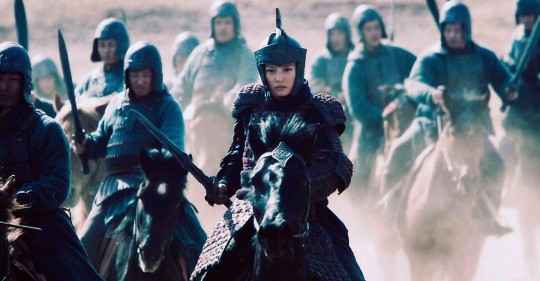
"Today we will stain the battlefield with our blood. Behind us is our homeland. If we have to bleed out our last drop of blood, if we have to become bleached bones in this desert, we must defend it to the death! We must let the Rourans know we Wei warriors will never surrender and will never compromise! Soldiers may rebel against me, generals may leave me for dead, but I, Hua Mulan, will never betray my country!"
Generally, I either have an issue with strong female characters because they are just shallow (meaning they are only physically strong, often viewing rudeness, misandry and independence as strength). I like female characters who are so much more to that.
Mulan, in this film, not only showed her badassery in fighting the war for more than a decade, but we also see how much she struggled. Everytime her comrades die, her heart gets broken. Yet she has to learn how to pick herself up and become the leader that they need. She dislikes war, she dislikes the bloodshed; yet she fights for her country.
To me, a strong female character is not just a feminist icon or someone who can fight. In fact, a female character doesn't need to be someone capable of fighting, what makes her strong is to be able to overcome turbulence with determination.
I think this is something that is lacking in recent "strong female characters" - showing us their strength through perseverance.
As for the Disney's counterpart (talking about the 1998 film here), it is less morbid but we also see her trying her best to make her family proud and protect her country. Like the song Reflection and Loyal, Brave and True, she struggles with finding her purpose and her role in her family.
"The greatest gift of honour, is having you for a daughter."
4. Blanche Dubois from A Streetcar Named Desire
It's been years since I had analysed Blanche, but among all the 6 books that I had to study for English Literature, A Streetcar Named Desire has been my absolute favourite.
I think what struck me in this book is not just the style, but Blanche's vulnerability. Her actions are definitely not morally good: she misrepresents things, she lies, she even had sex with an underage student. She's paranoid, mentally unstable and prissy. Which was why, her polar opposite character, Stanley, is so annoyed with her.

After her husband's suicide, we see Blanche relying on the company of men to fill the void of her loneliness and misery. She is also concerned about her beauty fading with age - I find that highly reliable. It sounds incredibly "vain", but beauty does play a part.
Based on Evolutionary and Mating Theories among humans, appearance in women are especially important (also for men but not as much as women). Of course, there are other factors and traits that people find attractive, but Blanche's concern is valid here. She needs to find a husband to escape from her financial troubles; and her age, beauty and chastity plays a huge factor in her search for getting a man in the setting she was in (which was Mitch in this case). Ironically, these are the very traits that she has "lost" and so desperately tries to hide it.
Her ending is truly a devastating and upsetting one. [Will not talk about it due to spoilers]
"I've always depended on the kindness of strangers."
5. Haibara Ai/Shiho Miyano from Detective Conan
Perhaps one of the girls that is a wasted potential. In a series where the characters are mostly flat, she's arguably the most multi-faceted (but somehow I had heard that she no longer has the same complexity as she used to have - it's been a while since I followed this series).
But I remember absolutely loving this character.
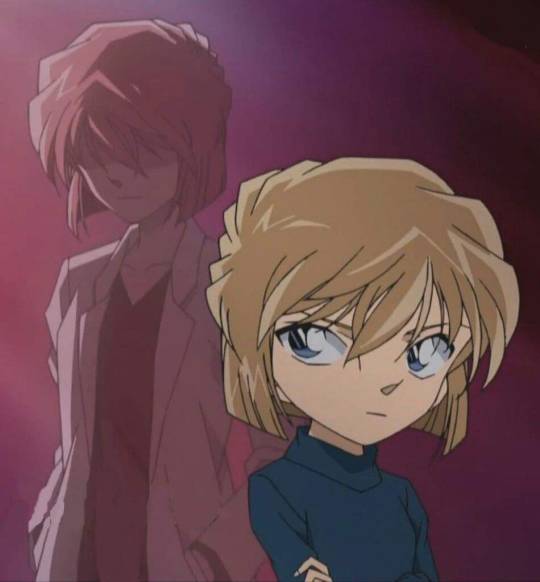
Her background story is really unique in the show and one that is embedded within the Black Organisation plotline (why her character was dropped... Forever frustrating for me).
From the moment she was first introduced, we see Conan taking an immediate distrust towards her. A guy who is a detective who had been catching criminals - yet one ex-syndicate member stands before him. The one that actually helped to develop the APTX4869 that changed his life.
Yet, we see that it wasn't entirely within her control. Both her parents were syndicate members and when her sister tries to get both of them to leave, her sister dies.
Ai starts off as seemingly cold, pessimistic and avoidant. But as her arc goes on, the iceberg around her melts. We see her quirky sarcastic replies, her taste for fashion and she genuinely desires to be happy. Her relationship with Conan developed into a beautiful one - to the point where Conan trusts her with anything and they would risk their lives for one another.
Yet, we also empathies with her impending jealousy and heartache. The boy she has fallen for already has someone else. What's more, the girl is genuinely kind and is a splitting image of her sister. After Ran saved her from Vermouth, she quickly warms up to Ran as well.
She's also the key to developing the antidote for Shinichi to be back with Ran - an almost painful metaphor for her to give him away (he never belonged to her in the first place). Yet, she doesn't really stop them from being together (even though in some cases she appears jealous or phrase ShinRan's reunion as a word of caution).
I definitely think she is the most compelling character in Detective Conan because of her character development and the struggles she faces. It's definitely upsetting that her character has been neglected.
“Don’t judge people from the outside. Like any rose has thorns, the more the person appears nice on the outside, the more you should doubt the inside.”
6. Misato Katsuragi from Neon Genesis Evangelion
Who is the best female character in Eva? Asuka or Rei? My answer will always be Misato, Risato is a close second (I wanted to analyse Risato, but I’m trying to keep it to one person per series). Misato is one of the 90s anime babes. She definitely captivated many people’s heart.
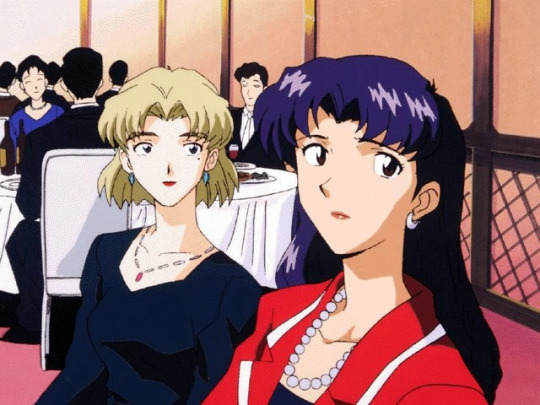
I must say though, I have a soft spot towards female characters who has some sort of daddy issues (why I like Neon Nostrade). It’s been a while since I had watched Eva, but I’m going to try to remember why I like her.
I think the concept of Hedgehog’s Dilemma has been echoed throughout the series, and all the characters seem to struggle with emotional attachment towards people. I actually like to phrase the Hedgehog Dilemma as “Avoidant-Fearful Attachment Style” - wanting connection with people, yet not being able to do so out of fear of being hurt.
For Misato, when I initially first watched Eva, I compared her a little to Blanche Dubois in how they cope with loneliness - their sexuality. I remember being confused with her interactions with Shinji, who was half her age. At times, she serves as his guardian/mother figure; but at some moments (I think it was sometimes after Kaji’s death), she tried to seek comfort with Shinji by attempting to initiate sex (which Shinji rejects). I remember coming across a comment somewhere that Shinji and Misato’s relationship is somewhat like Humbert and Dolores (from Lolita) - can’t comment on this as I only read the first chapter of the book.
It makes me think that she uses sex as a way to cope and the only way she can connect with people (and it’s superficial), which doesn’t work for Shinji because she needs to be her guardian (and ultimately fails to be purely his guardian once she crossed that no-no boundary).
Another thing to note was her backstory about her dad. There seems to be a dissonance, given that she resented her dad for not spending time with her due to his work, but he ended up sacrificing her life for her. I do think it’s a bit of guilt (because resenting her dad but he saves her - these two contradicts one another). It’s clear that her issues to connect stems from her backstory regarding her father.
It’s interesting how she compares Kaji to her father. I do think she loves Kaji, but “reminds him too much of her father” (as to put it simply). There is this... stereotype that we find someone similar to our opposite-gender parents, no matter how shitty they were towards us. I believe that it is because we tend to stick to something that is familiar to us, even if those type of people aren’t good for us (I think to break this cycle is to practise self-awareness and know what is good for us).
Anyway, Misato is a character that I really liked (as all the characters in Eva) because they highlight Hedgehog’s Dilemma that stemmed from their parental issues. Maybe I have not watched a lot of anime, but female characters with issues with their fathers are not as explored deeply as male characters and their parental issues. A lot of times, female characters (especially in shounen) serves as a romantic interest and yes they can have really sad backstory, but not issues towards their father and how it affects their relationship with other people. So far, the only ones I had seen is Mukuro (Yu Yu Hakusho), Misato and Neon Nostrade.
7. Disney's Cinderella
First of all, she has been a victim of abuse since she was a child. It's not easy for her to escape her predicament. Where can she go? It's not that easy.
Boy. I hate how much people remember Cinderella wrongly and attack her for being "backwards", which is actually factually wrong.
Cinderella always get flack for using the Prince to "escape" her predicament when "she can do it herself".
I say that's bullshit. I actually came across a youtube video: Cinderella Stop Blaming the Victim [please check it out for more in-depth analysis]

Despite all that, she's doesn't internalize it. She knows she doesn't deserve to be treated this way, and she does to a certain degree stand up to them (whenever the cat makes her tasks harder). She knows when to fight back and restrain herself because it might endanger her life.
After years of suffering in this domestic household, she remains kind, compassionate and hopeful. Which is not an easy feat. The problem is, these traits are often seen as feminine and synonymous with being weak. But it is actually, in fact, signs of strength. The mental fortitude she has to remain kind after all she went through is a sign of strength.
The Fairy Godmother only appeared when she was losing hope - take note that she ends up crying because her stepsisters tore her mother’s dress (which is the most disturbing scene in the film).
Even I had remembered this wrongly - one crucial fact is that... She did not want to go the ball to nab the Prince. That was her stepsisters. Homegirl just wanted to chill. She did not even know she was dancing with the Prince!
When Lady Tremaine locked her up to prevent her from reaching the Prince, it wasn’t the Prince that saved her. She and her animal friends got her out of the room, and proceeded to prove that she was indeed the maiden that had danced with the Prince. Her marrying the Prince was only a fitting end to her because it provides her a home and an escape from an abusive household; however, it was her resilience for holding onto fate and being mentally strong, and her initiatives partially contributed to her happy end. The Prince is more like a passive character.
I highly think that people tend to brush her traits - e.g. compassion, having fate, being kind is listed as feminine. However, it is far from being weak, which most people would deem it as. But that is definitely not true.
“No matter how your heart is grieving, if you keep on believing, the dream that you wish can come true.”
8. Mikasa Ackerman from Attack on Titan
Mikasa is either a hit or miss among AOT fans. Some people like Mikasa because she is physically strong and her loyalty to Eren is admirable. On the other hand, some people think she’s clingy and her being physically strong makes her a Mary Sue.
Whether or not you like Mikasa, there is a fact that she is not a Mary Sue. The definition of a Mary Sue is a female character lacking in weakness and seems perfect.
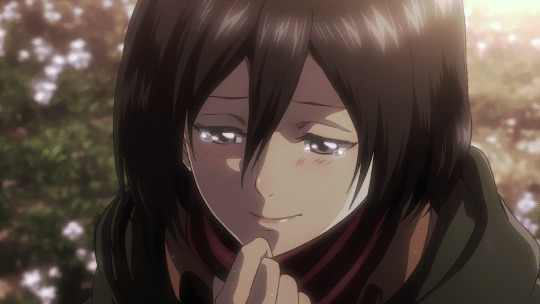
She is physically strong, yes - I believe that Isayama wanted to distribute traits to the trio. Even Hannes has said it in S1. Armin represents intellect, Eren represents grit and Mikasa represents strength. So her being physically strong makes sense, and Isayama also provided an explanation for it (being an Ackerman).
However, this does not mean she lacks any weakness. Arguably, her loyalty to Eren is both a liability and her strength. This “weakness” has been highlighted by her dilemma between her loyalty towards Eren and her belief that mass genocide is wrong.
[I won’t go into details about the manga parts that have not been animated as of 2021, can’t spoil it too much].
#daisy buchanan#mikasa ackerman#misato katsuragi#evangelion#cinderella#mulan#haibara ai#ai haibara#detective conan#shiho miyano#neon nostrade#hxh#hunterxhunter#blanche dubois#a streetcar named desire
63 notes
·
View notes
Text
Anonymous asked: Have you watched Lupin? What did you think? (And are you a fan of the books or other adaptations of the character?)
The short answer is yes, I have seen Lupin on Netflix. Overall I enjoyed it so long as I suspended my disbelief at certain things.
Unfortunately it took being struck down by Covid and being bedridden for me to actually to binge watch the whole series. So I was behind the curve when my friends, French and those outside of France, started to talk about it around me. I had to beg them not to give away spoilers until I had seen it all.
It did surprise me that it won rave widespread reviews outside France because usually French drama series don’t travel very well outside of France. I’m sure even Netflix had no idea how successful it would be for them. I’m sure being in Covid lockdown had something to do with it. In any case I don’t begrudge its success as it’s well earned.
However I wasn’t too surprised that within France itself the French reviews were decidely mixed and divisive. The critic at Le Point painfully hit the nail on the head when he wrote, “Le plus gros défaut de l'ensemble reste la pauvreté des personnages, tous unidimensionnels, caricaturaux et aussi épais que du papier à cigarette.“ - loosely translated as, ‘the biggest flaw of the whole thing remains the poverty of the characters, all one-dimensional, cartoonish and as thick as cigarette paper’.
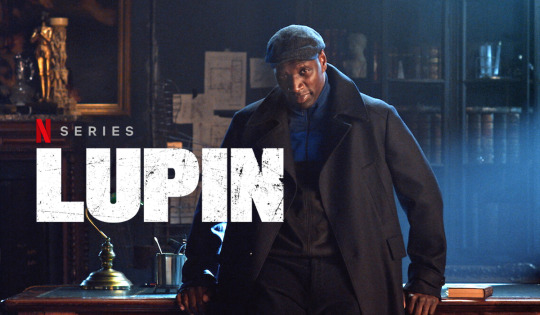
There’s a growing amount of good French stuff on TV and streaming services but a non-French audience will not have had the chance to have seen all of it yet. I can think of any number of French television drama/dramedy/cmedy series that are much better than Lupin with better plots, characters, and even a truer perspective of French society and even modern day France (Dix pour cent (Call My Agent!), Le Bureau des Légendes, Engrenages, Baron Noir, and Paris Police 1900). But you would be hard pressed to find anything that comes close to Lupin just for the sake of something fun to watch during the Covid lockdown.
What makes the current generation of home made French television series so interesting is how much of it is a reflection of France’s own anxieities about itself and its role in a increasingly English speaking dominating world. In a funny way it sees itself as defiant plucky Asterix fighting off the Roman American cultural hordes from totally invading their Francophone culture.
For sure, it has societal and racial issues stemming from its colonial legacy and issues of immigration and integration (France has the largest Muslim population in Europe). However it seems to want to ‘resolve’ these issues through the almost sacramental adherence to French secularist ideals rather than American inspired ideas of social justice and equity. There’s always been something very admirable about the French - from the time of General de Gaulle and perhaps before - always swinging from snooty ambivalence to outright antipathy towards the influence of American culture ‘americanising’ French culture (no to Walmarts or fast food chains for example).
Is it any wonder then that Netflix’s ill-conceived American series ‘Emily in Paris’ was widely hated and mocked within France for just perpetuating those lazy American tropes of Paris and French culture?
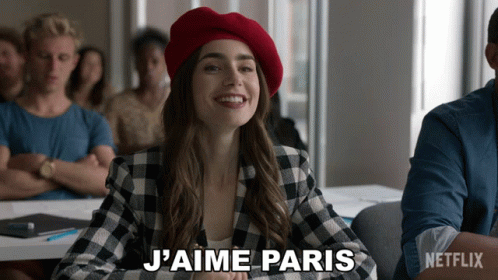
Personally I know Francophile Americans, long resident in Paris, who were frankly embarrassed and spent a lot of time apologising to their French friends. I have one American friend who has told me that she was so mad that she would have blind folded Emily and shoved her hard in the car boot and drive her all the way to the poorest of the banlieues in the grimey crime saturated suburbs of Paris - Seine-Saint-Denis came to mind - and dump her preening arse there. She would slap her and tell the spoilt entitied brat to make her own way back home - you know, to her spacious apartment in one of the most expensive arrondissements of Paris that of course(!) any American intern working for French marketing firms can afford.
I digress. My apologies. Watching this God awful show gives me PTSD.
Onto Lupin.
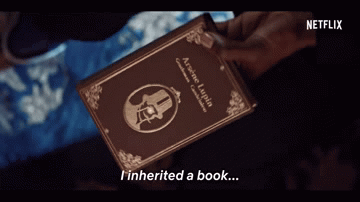
Thankfully Lupin doesn’t try to play to non-French tropes of what Paris is or isn’t. It does skim the surface of current discontents within French culture and society (race, class, power, and money) but ever so lightly so as to not get in the way of just spinning a good crowd pleasing yarn. It invites you to have fun and not to think too much. I have to be honest and say I enjoyed it as long as I suspended my disbelief here and there.
Lupin refers of course to the character Arsène Lupin, the French gentleman thief who stole jewellery from Parisian haute bourgeois and aristocracy at the turn of the century. Lupin, as written in the novels and short stories by Maurice Leblanc between 1905 and his death in 1941, was the archetypical anti-hero, a Robin Hood who stole from those who deserved it but kept the loot himself. He was often portrayed often a force for good, while operating on the wrong side of the law.
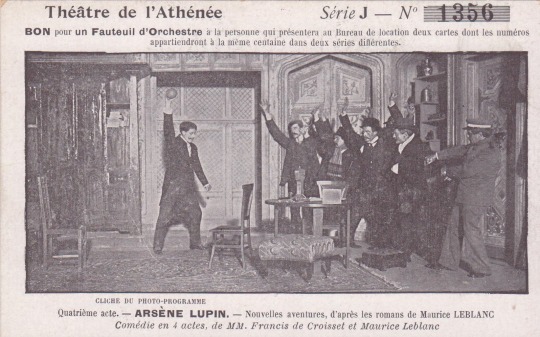
Lupin never really made much of an impact outside of France as he had within France where is revered with many French film and television adaptations. In England, we already had a Lupin type character in the form of A.J. Raffles, a cricket playing gentleman thief with his aristocratic side kick, Bunny. E.W. Horning’s stories of Raffles’ daring heists proved to be quite popular with the British public when Raffles first appeared on the scene in 1898. And even later Leslie Charteris’ The Saint took over the mantle from Raffles as the gentleman thief/adventuring Robin Hood.
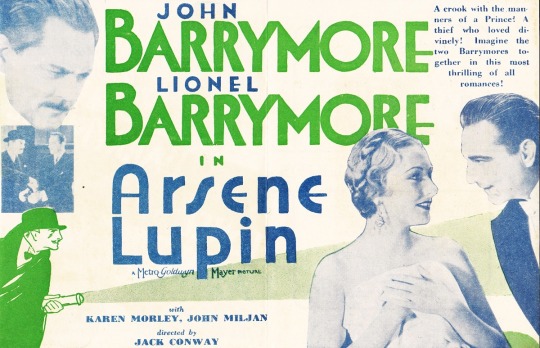
I think Hollywood tried to introduce him to an English speaking audience (legendary actor John Barrymore even played him) but he didn’t really take off and eventually they found their gentleman thief archetype in Sir Charles Lytton aka The Phantom (played by David Niven and Christopher Plummer) in the Pink Panther movies. So Lupin never got the English audience he deserved.
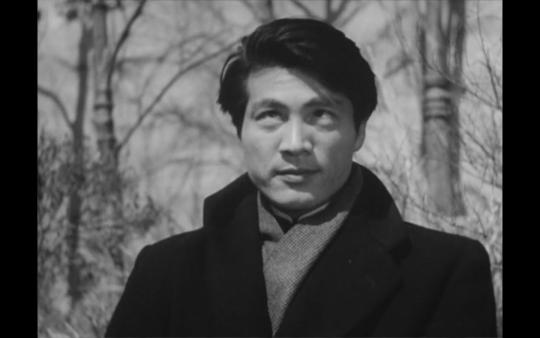
I first got wind of who Arsène Lupin was when I was growing up in Japan as a child. As strange as it sounds Lupin was big in Japan especially after World War Two. The Japanese did their own take on the Lupin character using Japanese actors and plot lines but it was Lupin.
I don’t know how exactly but I remember watching these scratchy DVDs of these Lupin inspired films. I think it was one of my parents’ Japanese friends who was mad for all things Lupin and he had studied French literature in France. Jogging my memory I now recall these black & white films were done in the 1950s. One starred Keiji Sada and the other version I remember was with Eija Okada (he was in Resnais’ classic film, Hiroshima Mon Amour) as Arsene Lupin called (I think) Kao-no Nai Otoko. I didn’t understand most of it at the time because it was all in Japanese and my Japanese (at the time) was pitiful, but it looked fun.
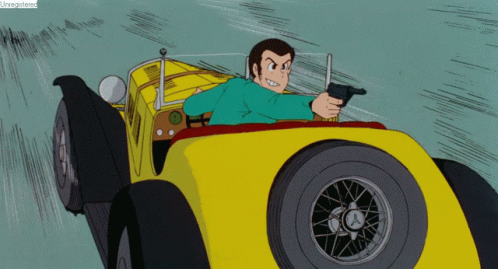
There was even a Japanese manga version of Lupin which was called Lupin III, - so named because he was the grandson of the real Arsène Lupin.
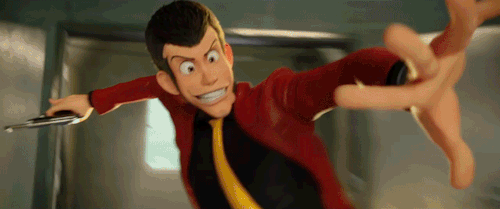
The 1960s manga series spawned generations of TV series which I do remember watching and finding it terribly exciting if somewhat confusing.
It was French expatriate friends whom my family knew that introduced me to the real Arsène Lupin. They had a few of the books authored by Maurice Leblanc. It was in French so I read them to improve my French but enjoyed the story along the way.
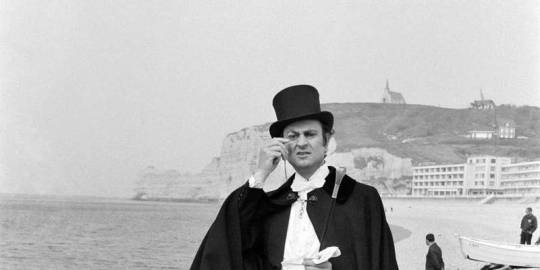
I also remember them showing me scratchy episodes of the 1970s Franco-German TV series ‘Arsène Lupin’ with the monocle wearing Georges Descrières in the lead role. It was a classical re-telling of the adventures of the aristocratic gentleman-burglar and very family friendly viewing. I don’t really remember much of it to be honest.
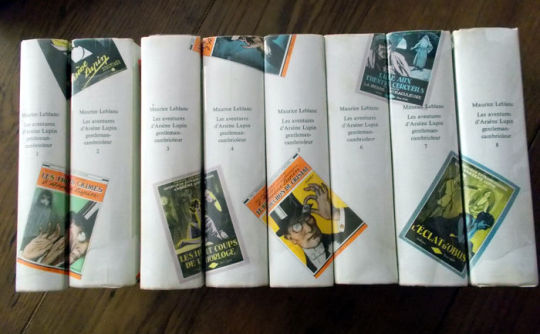
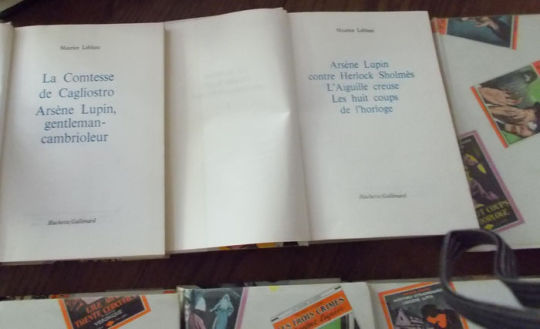
It was some years before I actually started to read more of the Maurice Leblanc’s novels and short stories collection. I have them all now. I was a teen and I remember being stuck in a snowed in a Swiss Alpine chalet and with nothing else to do but pull out a few dog eared books from the bookshelves belonging to our French host and read to pass the time.
I read Les Dents du tigre, Arsène Lupin vs Herlock Sholmes, and Les Huit Coups de l'horloge and thoroughly enjoyed them in the original French. I was already reading classic detective and mystery novels (Sherlock Holmes, Poirot etc) so it was natural to read the adventures of Arsène Lupin.
I haven’t got around to reading all the novels and short stories but I have read most of them and I enjoyed them all immensely. In the same way Conan Doyle, through Holmes and Watson, manages to conjure a convincing picture of late Victorian and early Edwardian England, so Leblanc manages to give us a taste of Belle Epoque France through the eyes of his suave gentleman-thief, Arsène Lupin.
Indeed it's a lot like reading Sherlock Holmes in that you're always trying to figure out how he did it, but the difference is that you are rooting for the bad guy. You can’t help but be drawn to this gentleman thief who is charming, comic, playful, and romantic and generous. Lupin is not an intellectual puzzle-solver but first a master criminal, later a detective helper, who maintains his curious ethics throughout his adventures. In this regard he is very much the anti-Sherlock Holmes; and I wasn’t disappointed when I actually read the story where Lupin faces off with Holmes himself. Brilliant!
I’ve also seen the 2004 French movie with Romain Duris in the Lupin lead role and it also starred the majestic Kristin Scott Thomas and the sexy Eva Green.
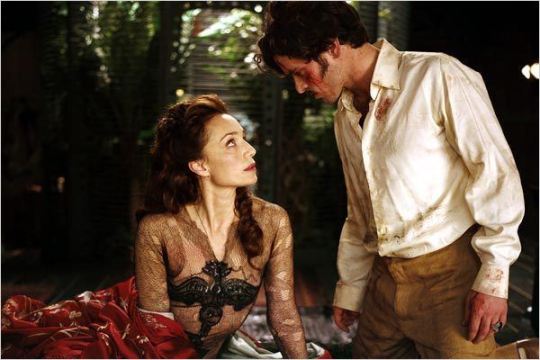
It was a decent adventure flick and it was a clear confluence of different Lupin novels (The Queen's Necklace (introducing Lupin's childhood), The Hollow Needle (where the treasure is the macguffin of the story), The Arrest of Arsène Lupin (the gala on the ship as a backdrop) and Josephine Balsamo, (one of Lupin’s most memorable opponents in the The Countess Of Cagliostro).
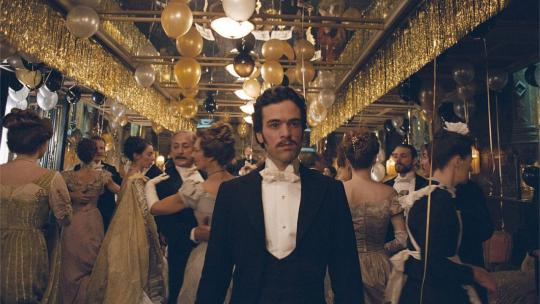
Romaine Duris, a fine classical actor, was I felt miscast because he didn’t have Lupin’s levity of wit and be at ease within himself. I love Duris in his other films but in Arsène Lupin and even in his other film, Moliere, he seemed ill at ease with the role. Perhaps that’s just me.
The latest Netflix adaptation (or reimagining to be more precise) is a welcome addition to the world of Arsène Lupin.If you don’t over-think it, it’s bags of fun.
Omar Sy is immensely likeable. Sy is a deservedly a big star in France - he won the best actor César for “The Intouchables,” an international hit - and has played forgettable secondary characters in big-budget American special effects movies (he was Chris Pratt’s assistant in “Jurassic World” and a minor mutant in “X-Men: Days of Future Past”). It was reportedly his desire to play Arsène Lupin, whom he’s compared to James Bond (“fun, funny, elegant”), that led to the series, created by British writer George Kay. And it is on his charm that the series largely, though not entirely, rests.
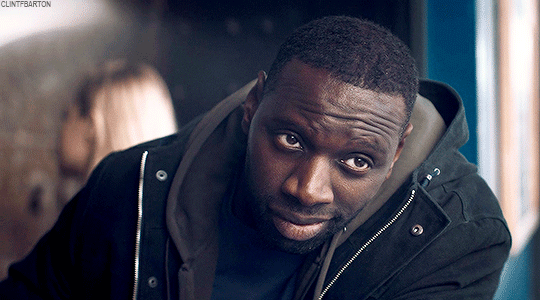
So the basic story revolves around a jewellery heist. Sy plays Assane Diop, a first-generation French-Senegalese man in contemporary Paris. A collection of Lupin stories, a gift from his father - whose undeserved fate Assane set himself to avenge in long-delayed, Count of Monte Cristo style upon a criminal tycoon - has made the actual Lupin books a foundation of his life and profitably illicit career. This fan-ship goes as far as borrowing practical ideas from the stories and constructing aliases out of anagrams of “Arsene Lupin,” a habit that will attract the interest of a low-level police detective (Soufiane Guerrab as Youssef Guedira) who shares Assane’s love of the books. (That the detective also shares an initial with Lupin’s own adversary, Inspector Ganimard, is possibly not a coincidence.)
Among the many comic delights of Lupin, is an unspoken one. Time and again, the show’s hero, master thief Assane Diop is able to slip into a place unnoticed, or by assuming a minor disguise that prevents witnesses from providing an accurate description of him to law enforcement.
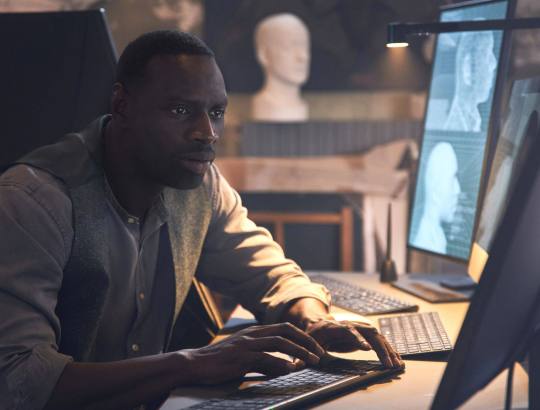
Why is this funny?
Because Omar Sy is six feet three (and, since most actors are short, seems even taller), is roughly as wide as soccer pitch, and is memorable even before he flashes his infectious million-Euro smile. This is not a man for whom anonymity should be possible - even allowing for racial bias in a majority-white country, Assane would be memorable and distinctive - and Lupin seems cheekily aware of this. Like the various incredible sleights of hand Assane deploys to pull off his thefts and escapes, his ability to be anyone, anywhere, is treated more as a superpower than as something even the world’s greatest criminal would be able to pull off.
At one point, when he’s slated for a cable news appearance as a much older man, we learn that Assane is also a master of disguise. The revelation of this skill arrives with a wink in the show, and it feels pointless to ask where he learned it, or how he affords movie-quality latex and makeup. Or rather, asking the question feels wrong.
We know this is impossible, the show seems to be asking its viewers again and again, but isn’t it so much fun?

The performances and the production - it has that particularly European filmic quality of feeling natural even when it gets stylish - keep the series warm even as the plot is made up of incredulous contraptions that require everything to go right at just the right time and for human psychology to be 100% predictable. Its physics are classical rather than quantum, one might say, and like the world itself, which becomes more curious the deeper you peer into things, it is best handled along the surface. You do not want to take too much time working out the likelihood of any of this happening. Just go along for the ride.
Somehow, though, it all works because Sy is so magnetic and charming that questioning plot logic feels wildly besides the point. Though he never looks appreciably different in his various aliases (including one ill-conceived live-TV appearance done under old-man makeup and a thick beard), he changes his posture and voice ( if you watch it in French that is) enough to allow for the willing suspension of disbelief, in the same way that any lead actor as Superman has to do when playing Clark Kent. But Sy and the show are at their strongest when Assane is just being his own Superman self, utterly relaxed and confident in his own skin, and so captivating that his ex-partner, Claire, can’t really resist him despite ample reason to.
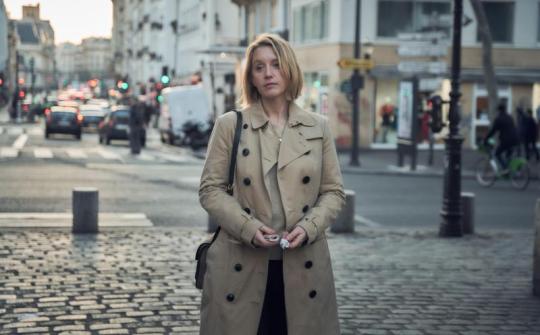
If Assane seems practically perfect in every way, he is not perfectly perfect. His most obvious failing is that his criminal shenanigans and revenging make him less than reliable in his daily life, affecting his relationships with ex-partner Claire (Ludivine Sagnier, whom non-French audiences might recognise from “The Young Pope” and “The New Pope”), who despairs of his inability to show up on time to see his son Raoul (Etan Simon). Like Sy, Sagnier brings a lot of soul to her part - though onscreen far less, she’s as important as Sy to the series’ success - and the two actors have great chemistry. Also impressive and key to creating sympathy are the actors who play their flashback teenage selves, Mamadou Haidara and Ludmilla Makowski. Really, you could do away with action elements and build a series around them.
This is a pity because Lupin often fumbles its emotional reveals in other parts - the story of Diop being torn between his job and his family feels like wheel-spinning, rather than genuine emotional intrigue.
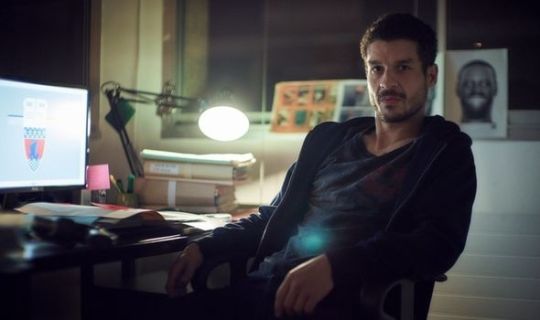
Soufiane Guerrab is wasted in the Young Detective Consumed by the Case role and spends most of this season pinning colour printouts of book covers to cork boards and getting waved off by his colleagues, who are all blinded or otherwise hampered by careerism.
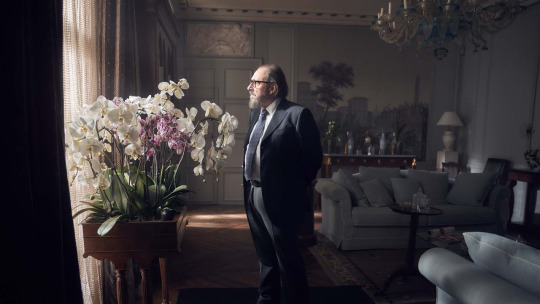
But to my mind the weakest link is the villain himself and his daughter. Veteran actor Hervé Pierre hams it up as Hubert Pellegrini, a business tycoon who is the patriarch of the Pellegrini family. He just comes across as animated cartoon villain with no character depth (think moustache twirling Russian villain, Boris Badenov, in the Rocky & Bullwinkle cartoon shows). He just emotes anger a lot without any nuance or hint of complexity.
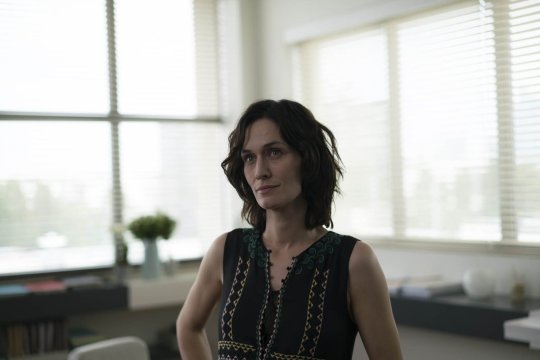
Even Clotilde Hesme who plays the daughter who is unaware of her father’s criminal tendencies is miscast. For the record I adore Clotilde Hesme as she one of France’s most talented classical actresses (that non-French outsiders will not have heard of). She is a classically theatre trained actress and is one of the best stage actresses of her generation that I have ever seen. I’ve seen her in plays where she is just mesmerising. She has said before that she’s more comfortable on the stage than she is on the screen. And when she has been on screen she still has been a powerful presence. She’s actually won a César too. Here in Lupin, she seems to have no agency and looks bored with nothing really to do.I really hope they give her more scenes in the next part of Lupin.
The series is at its best when following Diop enacting his plans, and when revealing each one from a different vantage, making us privy to every moving part like a magician revealing his secrets. The show captures the momentum of a clockwork heist, the tension of sudden obstacles and the ingenuity of improvised responses, with thrilling precision (especially in “Chapter 1 - Le Collier de la reine,” directed by Now You See Me’s Louis Leterrier).
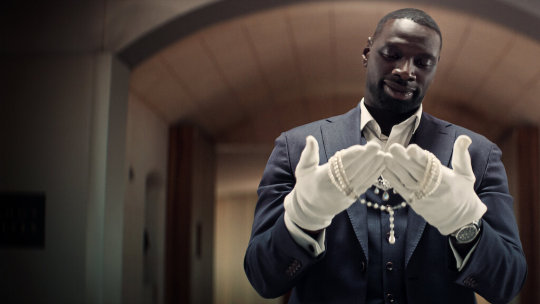
Lupin is also politically incisive when it wants to be; it brings to mind Ladj Ly’s Oscar-nominated 2019 film Les Misérables, which adapted the broad strokes of Victor Hugo’s novel about the 1832 Paris Rebellion, and modernised the story by focusing on the police brutality faced by non-white Parisians.
Lupin opens with Diop disguised as cleaning staff and entering the Louvre after-hours, alongside dozens of forgotten, anonymous non-white workers as they pass by “La Liberté guidant le people,” Eugène Delacroix’s famous painting of the July Revolution of 1830 which replaced France’s hereditary rule with popular sovereignty.
Before any semblance of plot or character, Lupin centres broken ideals and promises unkept (without giving too much away, the show’s primary villain has much more nationalistic view of French culture and history which merely adds to a cartoonish caricature than a complex character). The rest of the episode is about valuable jewels once owned by Marie Antionette - one of the most recognisable symbols of wealth and extravagance in times of extreme poverty - which are put up for auction by the Pelligrini family, and bid on by other wealthy collectors with bottomless purses and no sense of irony.
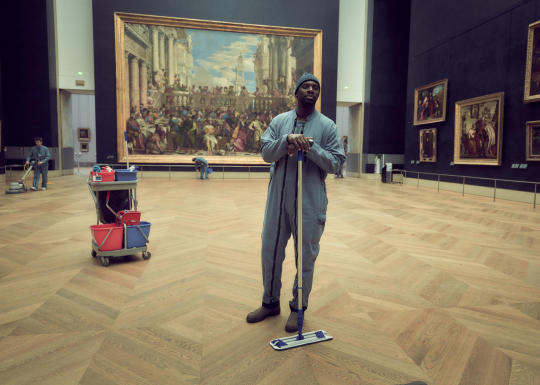
Granted, beyond this auction subplot, explorations of race and class are largely limited to individual interactions, but the show continues to refer back to (and implicitly comment on) its source material in ways that wink at the audience. An elderly, unassuming target of Diop’s schemes seems like an unlikely victim at first - Diop, though he acts in his own self-interest, usually displays a moral compass - until this victim reveals the colonial origins of her wealth, immediately re-contextualising the ethics of the situation, in a manner that Leblanc’s stories did not. (The show is yet to apply this lens to Arsène Lupin himself, who Diop treats with reverence, but that’s a secondary concern since Lupin is entirely fictional in-world).
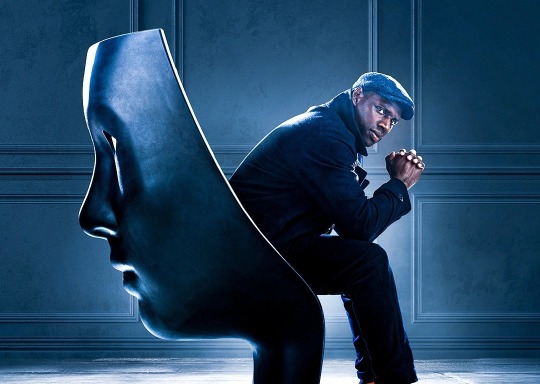
Barring some nagging structural problems - like cutting to flashbacks when things are getting exciting, or epilogues that feel ten minutes too long - Lupin mostly works. It plants a few personal seeds early on, which it keeps hinting at without fully addressing, but by the time its scattered elements come into focus, the show finally figures out how to weave them together, and delivers a mid-season cliffhanger that renders many of these flaws irrelevant.
Lupin manages to have fun even with an antiquated premise - the story of a suave con-man who charms his way through high-profile robberies - while adding just enough new spin on the concept to feel refreshing. Omar Sy may not have much to work with, but his alluring presence makes Assane Diop feel like a worthy successor to Arsène Lupin.
Lupin isn’t going to win César, BAFTA, or Emmy awards, or even turn heads for its ability to develop tertiary or even secondary plots or characters - that doesn’t really matter. You’re there to see a difficult hero be difficult and heroic - everyone else is there to be charmed, vexed, or eluded by them. Sy’s performance bounds off the screen, and is almost musical. He floats through scenes like he glides over the roofs and through the back alleys of Paris; he outmanoeuvres his foes with superior literary references and sheer athleticism. He is irresistible and also good at everything he tries, even kidnapping.
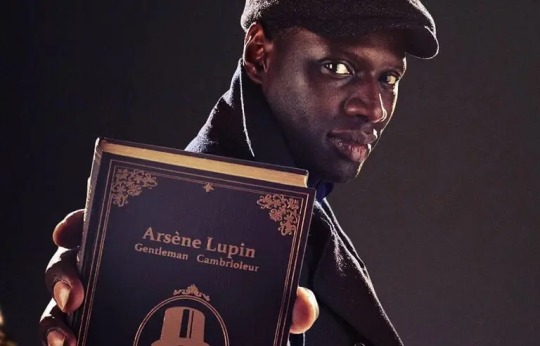
I would encourage anyone to watch Lupin for a fun care free ride. But the only caveat I would make is watch it in the original French.
If you don’t know French then put on the subtitles to understand (that’s what they are there for). The real crime is to watch this (or any film or television series) dubbed in a foreign language. It’s disrespectful to the actors and film makers and it’s silly because it’s comical to watch something dubbed over.
Please watch it in the original French.
Then go and read the books. You won’t regret it.
Thanks for your question.
#question#ask#lupin#omar sy#netflix#tv show#culture#personal#arsene lupin#japan#maurice leblanc#france#french#society#arts
48 notes
·
View notes
Text
Ranking adaptations of Victor Frankenstein from least to most evil
The character Victor Frankenstein has been adapted many times over the years. Sometimes he’s a heroic YA protagonist while others have him using his clone army to wipe out humanity and take over the world. But which Victor is truly the worse?
After reading several adaptations, I’ve decided to rank Victor’s morality in each one and find out! The gothic lit community doesn’t talk about these adaptations much, so hopefully this list can introduce the fandom to some of the lesser-known interpretations out there!
This is part one, which ranks printed retellings only. If people enjoy it, I’ll do a part two and merge the films into the mix!
Disclaimers (please read):
SPOILERS! Victor’s actions in these adaptations will be thoroughly analyzed with no regard for the spoiler tag.
Some of the more evil Victor’s get into dark territory, and while I will not go into extensive detail (lest I go insane) if mentions of abuse, sexual themes, possessive behavior and murder bother you, don’t make my mistake and turn back! (I will leave an additional reminder when said parts come up)
This list centers on Victor’s actions and NOT the quality of the books themselves—so if you see your favorite title getting a low score it’s not because it’s a bad book—it’s because Victor is a jerk.
This list is by no means complete, just the ones I’ve read personally.
These are my silly personal opinions and if you disagree with my ranking that’s perfectly fine!
Ranking: On a 1-10 scale, with 10 being fantastic and 0 being “run if you see this man in a dark alley.”
10/10 Perfect Sunbeam. Overall great, wholesome guy!
*crickets chirp in a serene backdrop of a Romantic field*
Good dude
Junji Ito’s Frankenstein: 8.5/10
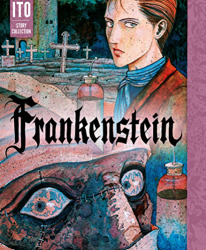
Props to the master of manga monsters for making the twist be that Victor is not secretly evil/insane.
Not only does Victor pity the creature and agree to create a mate for him—but he keeps his word! This is especially touching when you consider how the creature treks alllllll the way to Switzerland to dig up Justine’s head as a face for the bride. (Henry says he probably didn’t know it was Justines, but come on, you just happened to pick up the head of the girl you framed and carried it for miles across land and sea to deliver it to Victor instead of stopping somewhere closer? I don't buy it.)
Victor even goes the extra mile, kindly stating:
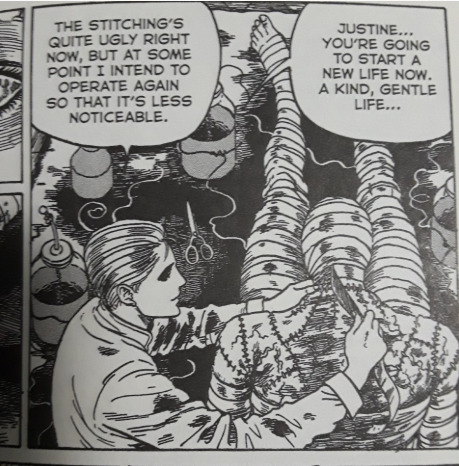
Yet the bride rejects the creature (not Victor’s fault) and in revenge, the creature kills Henry, Elizabeth, and Alphonse. In retaliation, Victor follows him onto the ice and relates his tale to Walton before dying.
Victor's actions are nothing heroic, but what more could he have done? He didn’t break his promise and kill the bride like in the original novel and he clearly cared about reanimating “Justine” as shown in the above image.
And did I mention this manga was done by Junji Ito? Would YOU stay in the same room if you created a Junji Ito monster? Didn't think so! After the initial mistake of abandoning his monster, this Victor did the best he could to make amends and protect his family--making him an overall good person.
Decent guy
This Dark endeavor by Kenneth Oppel: 7/10

Serving as a prequel to the original novel, This Dark Endeavor tells the untold story of what leads young Victor Frankenstein to create his monster.
While Victor very much struggles with his angsty dark desires (bad), he tirelessly searches for the alchemic "Elixir of Life" to save his twin brother (good). A brother who is more talented than Victor, has the heart of his love interest, and Victor believes everyone prefers over himself.
Good on you, Victor, for letting the love for your brother override understandable sibling jealousy. If that wasn’t enough to make him decent, letting a few fingers be cut off to save his twin definitely does.
What brings Victor down to a 7 is his relationship with Elizabeth. It’s born out of jealousy from her loving his twin rather than genuine affection. Even if this retelling makes Elizabeth a feisty, pants-wearing independent female (to lessen the possessive undertones Victor exhibits, I presume? Read it and judge for yourself), the relationship does nothing positive for his character. Tricking someone into kissing you is a jerk move, bro.
Ok I guess….
Such Wicked Intent by Kenneth Oppel 6/10
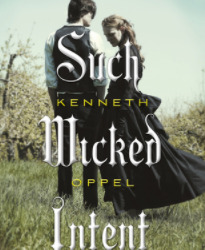
The sequel to This Dark Endeavor loses Victor’s careful balance of good and bad traits its predecessor boasted. Victor wasn’t perfect in TDE, but the majority of his negative actions stemmed from trying to save his ill brother and were mostly forgivable. In Such Wicked Intent, his understandable sibling jealously now comes off as petty since Victor’s twin is already dead.
Victor trying to bring his brother back to life (good) is undermined by his growing reliance on supernatural butterflies that increase his abilities despite other characters pointing out the obvious danger. Victor is also not the greatest parent to Twin 2.0 and the previous issues with him and Elizabeth from book 1 don’t improve. He’s the same Victor from TDE, but the plot focusing on his selfish desires makes him more flawed as a result.
Frankenstein by Mary Shelley (the original novel): 6/10
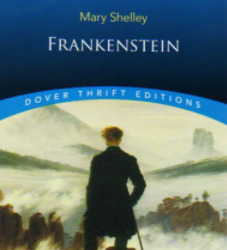
Depending on how you interpret the events of the original novel, Victor is either a college Dad in over his head and trying his best after an initial mistake, or a misogynistic, irresponsible jerk only capable of thinking of himself. There are enough professional articles to support both interpretations, and I’m not the person to pick one over the other.
However, if the narrative he tells Walton is to be taken as truth (and the creature not correcting Victor's account tells me it is), Victor spent most of the novel trying to fix his mistake (intentions may vary)—and isn’t too bad as a result.
Pride and Prometheus by John Kessel: 5/10
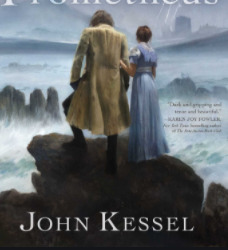
Despite being a crossover with Pride and Prejudice, Kessel tries to be as faithful to the original Frankenstein as possible. However, the few changes he makes hurts Victor from a moral standpoint.
Victor’s not the greatest guy when handling the romantic gestures of both Mary Bennet and Henry. Also, murdering his creature's mate with poison right before they leave to start their happily ever after is awful, but understandable from his point of view.
Then there's P&P's ending, where Walton describes meeting Victor on the ice. It’s revealed that Victor left killing the creature's mate and the Bennet’s out of his narrative. While this is probably Kessel justifying why Jane Austen’s characters and his changes weren’t mentioned in the original text (and who can blame him?) it does make Victor a liar. In the original, the creature never called Victor out for omitting anything—so altering the story on his deathbed places P&P’s Victor a rung lower than his original counterpart.
Ehh….
Frankenstein According to Spike Milligan: 4/10
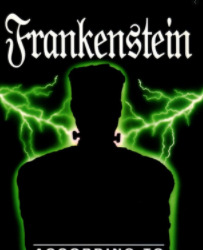
As a nearly-word-for-word retelling with minor, humorous changes by the comedian Spike Milligan, Victor is more pathetic than anything. He’s a harmless, pathetic, hilarious jerk.
Some quotes:
"I bounded along with feelings of unbridled joy and hilarity. From a great distance my family could see me bounding with unbridled joy and hilarity." (53)
*
"'I tell you,’ I said, ‘that murderer had his trousers down, was eating fish paste sandwiches and traveling 100 miles per hour.’" (59)
*
"‘I can offer you no consolation,’ said he.
‘Then piss off.’ said I." (54)
Here’s his jail visit with Justine in animatic form (and me shamelessly plugging my other creative endeavors)
Monster by Neal Bell 3.5/10
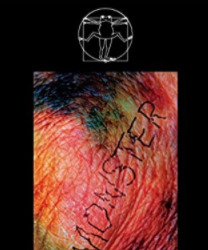
Warning: contains mentions of animal abuse
On one hand, Victor wants to conquer death to save his family and is clearly disturbed over Justine's and his mother’s death. However, the man expresses little concern at the possibility of William getting struck by lightning with his kite in front of his mother who had already lost 9 children.
He can also talk to dogs and cats (for…some reason?) who are portrayed as intelligent beings with feelings—yet that doesn’t stop him from eating said dogs in the Arctic and killing said cat after threatening her with a knife. He also flings around Bible verses while being painfully egotistical about “being God”.
Using Henry’s romantic affections toward him to his advantage, briefly forcing himself on Elizabeth, and tenderly caring for his monster only to abandon him after the creature expresses a want to die just makes him an awful person all around. The fact he doesn’t do these things with clear malicious intent saves him from being any lower.
Quotes:
ELIZABETH: A bone. A brittle bit of skin. A tooth—
VICTOR: Would you not be womanish now?
Be useful. Here—hold the Leyden jar,
While I attach the string…
*
VICTOR: A satisfactory morning, then, Mister Puss—tormenting the dogs?
CAT: God gave me a duty. I fulfill it.
VICTOR: Papa says there is no God.
(He takes out a knife)
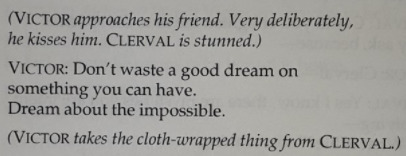
Pretty bad dude
WARNING: Please note that some of these Victors get into unsavory territory. If the mention of sexual themes/abuse/murder bothers you turn back:
The Casebook of Victor Frankenstein by Peter Ackroyd: 3/10
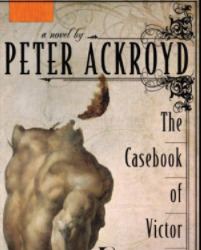
This one was tricky. The narrative chugs along with Victor being an intelligent, thoughtful guy with only a few obsessive tendencies. He’s chilling with the Shelleys, talking to the poor in the streets and financially supporting Fred’s family along with giving out generous tips. He’s a cool guy. He’s a great dude! He’s….revealed in the final 2 pages to be recounting everything from a mental asylum, the monster was in his head, and he’s actually the one that committed the murders.
Alrighty then. ¯\_(ツ)_/¯
Having his insanity revealed in the final pages, it’s hard to judge whether there was genuine malicious intent or if Victor truly thought he created the creature and believed he was doing good in trying to “stop” it. No matter his intentions though, the body count remains and a child strangler has no place being anything higher than a 3.
The Dark Descent of Elizabeth Frankenstein by Kiersten White: 1/10
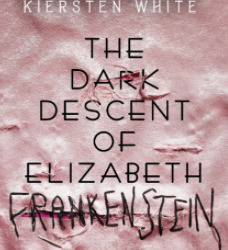
We all knew this one would make the list. Elizabeth’s first flashback sets up Victor as having serious issues—the question becomes how low will he go? Turns out pretty low.
He’s the one who killed William and framed Justine along with murdering his father, brother Robert and various people at Ingolstadt.
What really makes him despicable is that Elizabeth is the novel's main POV character who only sticks with Victor so she’s not thrown out on the streets. He’s abusive, controlling, dominating, and so possessive that he’ll perfect reanimation so that not even death can take her away from him! Yikes. I can’t stress enough how being in Elizabeth’s POV makes these actions all the more menacing.
Quote:
“There was never another path for you. Consider how much worse it has all been for me. How much I have had to suffer. And how much of that suffering has been caused directly by you!” His face twitched, and his fingers tightened on the pistol. Then he sighed. “It does not do to dwell on it. There is no point in fighting. This is your fate, Elizabeth Frankenstein. I will let no other claim you—not man, not death, not even God.” (279)
Nice guy.
Despite his terrible actions, Victor is trying to "save" Elizabeth from death. In his mind, he wants what’s best for her. It’s a crazy mind that mixed up domination and love, but the fact that his evil actions come from wanting to keep someone he wants to control cares about safe vs. other versions where his crimes stem from wanting to rival god and rule the world, this version isn’t THAT bad. At least his hearts in the right place—even if his mentality is utter garbage.
The Memoirs of Elizabeth Frankenstein by Theodore Roszak 0/10
*insert my screams of insurmountable anguish here*

Caroline: Hey son, you should do NSFW things.
Victor: Sure. I will now do NSFW things.
Victor: *proceeds to do NSFW things*
The reprint of this novel mentions on the cover it’s erotica, but the copy I bought (and to this day have not finished) had no such disclaimer. I’ll break my rule and speak on the quality of this book: there is none. For an alleged “pro-feminism” novel everyone is terrible—and Victor is no exception.
Literally Satan.
Dean Koontz’s Frankenstein Series: -∞/10
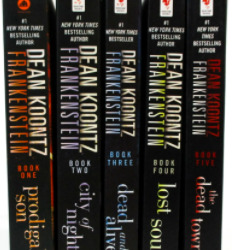
So you’ve read far enough to join me in Hell.
Where do even I start? This is a Victor who extended his life to the present day. Who worked with Hitler, Stalin, Castro and regretted the fall of the Third Reich. Who created an army of emotionally deprived “new race” creations to kill people and assume their identities so he could ascend the ranks of politics. Who, once he has enough of his new race integrated into society, desires to commit mass genocide on humanity and establish himself as supreme ruler of the world—only then can he conquer the cosmos as well because why the hell not?
Oh, and he’s a wife-beater/murderer too! Which isn’t a problem, considering he can create a new wife whenever he sees fit (he was on Erika 5 by book 3). The sheer lack of any positive traits in this man is laughable. Koontz really, REALLY wants to get across that Victor is a bad guy.
And if you’re somehow not convinced by the above description, here are some quotes I pulled from the first 3 novels as a bonus to reeeeeally sell how despicable this clown is:
Regarding Elizabeth:
“Victor had not loved Elizabeth. Love and God were myths he rejected with equal contempt. But Elizabeth had belonged to him. Even after more than 200 years, he still bitterly resented the loss of her, as he would have resented losing an exquisite antique porcelain vase if [his creature] had smashed that instead of the bride,” (3.97).
Regarding Mary Shelley:
“When Mary Shelley took a local legend based on truth and crafted fiction from it, she made Victor a tragic figure and killed him off. He understood her dramatic purpose for giving him a death scene, but he loathed her for portraying him as tragic and as a failure. Her judgment of his work was arrogant. What else of consequence did she ever write? And of the two, who was dead—and who was not?” (1.79-80)
(Author Note: For your information, Victor, The Last Man is considered by some to be the first dystopian novel)
His…ah…"friends”:
“Fire was featured in some of his less pleasant memories. The great windmill. The bombing of Dresden. The Israeli Mossad attack on the secret Venezuelan research complex that he had shared with Mengele in the years after World War Two. Nevertheless, he liked to read to the accompaniment of a cozy crackling fire,” (1.76).
*
“Victor admired Hitler. The Führer knew talent when he saw it.
In the 1930s and 40s, Victor had worked with Mengele and others in Hitler's privileged scientific class. He made considerable progress in his work before the regrettable allied victory…the problem with the Führer had been that his roots were in art and politics…The future did not belong either to artists or to politicians,” (2.24-25).
Dat ego tho:
“When I die, those cells will be capped descend a signal that will be relayed by satellite to everyone made of new race flesh, to every meat machine that walks. And you will fall down dead,’…Victor smiled, anticipating triumph in spite of their silence. ‘Did you think a God would die alone?’” (3.345).
*
Civilization would not be remade or sustained by Christianity or by Islam. Neither by Scientologists nor by the bright-eyed adherence of the deliciously solipsistic paranoid new religion encouraged by The Da Vinci Code. Tomorrow belonged to scientism. The priests of scientism were not merely robed clerics performing rituals, they were gods, with the power of gods. Victor himself was their Messiah,” (2.25).
*
“With Victor's unstoppable drive for power, with his singular intellect, with his cold materialism and his ruthless practicality, and now with synchronicity on his side, he had become untouchable, immortal.
He was immortal,” (3.329).
*
“How they goggled at him, abashed by his wisdom and knowledge, mortified by their ignorance, over-awed by his godlike power,” (3.330).
*
“’Murder,’ said the caller. ‘murder…excites me.’
Victor kept the growing concern out of his voice. ‘No, your mind is fine. I don't make mistakes.’” (1.156)
Oh yeah, he has a wife, doesn't he:
“This is why Victor requires …the cruel humiliation of his partner. He has long ago transcended the guilt that committing acts of cruelty might spawn in others...the exercise of raw power thrills him,” (1.244).
*
“I have given you a life…remember that. I have given you a life, and I will choose what you do with it,” (1.464).
Wives view of him:
“She owned literally hundreds of outfits. Having been created to his ideal measurements, Victor had purchased everything…She hoped that someday she would be allowed to shop for herself. When Victor allowed that, she would know she had at last met his standards and earned his trust. Briefly, she wondered what it would be like not to care what Victor—or anyone—thought of her. To be herself. Independent. Those were dangerous thoughts. She must repress them.” (1.107)
*
And those are just the PG bits, he does much, much worse.
*
In conclusion:
So yes, Spike Milligan made Victor a pathetic jerk, Casebook made Victor a madman, Memoirs made him an erotic predator, Dark Descent had him as an abusive boyfriend ruthless in possessing “his Elizabeth”, but nearly succeeding at worldwide genocide while abusing/murdering/manipulating people to achieve his goals makes Dean Koontz’s Victor Frankenstein the worse, more morally despicable Victor Frankenstein of them all. At least from what I’ve read.
Annnnd that’s it! If you want me to make a part 2 and add in the films/plays let me know! Hopefully at least one of these peeked your interest as something to check out during spooky season.
Shameless plug-in: here’s my own Frankenstein adaptation
*
Bonus!
Ranking the books on how much I liked them personally!
Great:
The Dark Descent of Elizabeth Frankenstein: Nice to see Victor’s villainy stem from family relations and not ego and wanting to defy God for a change.
Junji Ito’s Frankenstein: Phenomenal artwork, fairly faithful adaptation, and the changes serve to put Victor in a better light—which I love! The master of manga monsters himself made the right choice in keeping the creature more monstrous in this version instead of focusing on his humanity.
This Dark Endeavor: Frankenstein characters go on a Harry Potter styled adventure. Need I say more?
Average:
Such Wicked Intent: Victor’s character takes a dip, and pit monsters/life-absorbing butterflies don’t quite fit in a Frankenstein prequel.
Frankenstein According to Spike Milligan: It’s a silly, stupid comedy. Got a few chuckles out of me.
Pride and Prometheus: The concept works way better than it should. However, it follows the original text to a fault and can be boring at points.
Bad:
Warning: contains mentions of suicide
Monster: Victor’s character was far too inconsistent to be likable. He can talk to animals why, exactly?
Casebook of Victor Frankenstein: So, Victor is revealed to be crazy in the final 3 pages? So, the monster was in his head? Alright. But other characters throughout the book SAW the monster and described him like Victor did. So, there’s no way to separate Victor’s POV from reality and that kills the reread value and makes this a waste of time. Don’t get me wrong, the creature being symbolic for Victor’s inner demons is a fascinating direction if done well—and I recommend the essay “Frankenstein: The Man and the Monster” by Arthur Belefant if you want a much shorter exploration of this concept. It’s not perfect, but beats Casebook by a longshot!
Also, taking the real-life suicide of Percy’s wife Harriet and turning it into Victor murdering her and framing it on someone else to mimic Frankenstein’s Justine/William scene is just wrong. You made a woman’s suicide a cheap plot point in your fanfic of the mistress’s novel. That is what you did, author.
Dean Koontz Frankenstein: It starts out good and has great suspense—too bad the actual plot is awful. Victor’s so painfully evil it comes off as comical, the characters are bad/bland, plot holes abound (they state Mary Shelley’s novel is canon, then mention the windmill which was only in the films—so who even IS this Victor? Book or film?). The conclusion in book 3 is one of the most underwhelming finals I’ve ever read, and the creature “cures” a kid of Autism in the final chapter. No really. How this is a book series/comic series/movie is beyond me.
So atrocious I couldn’t bring myself to finish:
Warning: contains mentions of sexual themes
The Memoirs of Elizabeth Frankenstein: It claims to be pro-feminist, but the women “good guys” blatantly state they are grooming children for sexual rituals and Victor and Elizabeth are coerced into doing NSFW things by Victor’s mother in the name of “women’s rights”. Here’s the kicker: these awful actions are framed as being positive. I—a woman—loath this novel. Maybe things got better by the end (and if there was some plot twist that changed the entire setup, I apologize for ranting about nothing) but I’m not reading to that point to find out! This will forever stay both my first and last experience with erotic literature. Thank goodness The Dark Descent of Elizabeth Frankenstein exists to give us a decent feminist take on Frankenstein!
#THIS TOOK OVER 5 YEARS AND I'M FINALLY DONE!#victor frankenstein#frankenstein#halloween#gothic literature#classic literature#frankenstein adaptations#frankenstien au#frankenstein memes#the casebook of victor frankenstein#the dark descent of elizabeth frankenstein#frankenstein according to spike milligan#dean koontz frankenstein#Monster neal bell#this dark endeavor#such wicked intent#pride and prometheus#charlemagne1
117 notes
·
View notes
Note
The issue with Rent is that people treat it like a completed musical when it wasn't. Larson died the day before previews started and it's well known how much shows change in previews. Stupid things like the amount of telephone calls used to move the narrative along would've been cut and it would've been a more rounded show. 1/2
This is also why Rent the movie is better than Rent the musical, because the movie understood the plot holes and inconsistencies and fixed most of them to make it a more viewable musical 2/2
Of course this doesn't change the fact that intrinsically Rent is meant for a certain audience, and if you're not part of that audience you won't get it as much. But it did have potential to be better than the shitshow we got
i think i have to disagree with you, anon. while you bring up a great point -- that larson died before previews and thus the musical can hardly be considered ‘completed’ like other off/broadway shows are -- i don’t think that the movie is much better than the stage show, and i don’t think that, had larson lived to change the show past previews, it would’ve been that much better. certainly some things may have been, but there’s no guarantee that the changes made will actually improve things (there are definitely other cases of this), and i also think that Rent’s entire premise is perhaps flawed a bit too far past redemption.
from the standpoint of the film, i don’t think it’s really better than the stage show. cutting music in adaptation is fine as a concept but it should be motivated, and i think they cut too much out for the film that made the show a lot drabber of a watch. i also think they cut a lot of the music because the filmmakers just...didn’t know how to film musical numbers, which...why make a movie musical in the first place? sure, it comes down to personal preference whether you like things like the frequent telephone call numbers or not; personally, i like ‘em, but turning them into just talking scenes doesn’t make them stand out as either interesting or important in the film.
i do think, for the most part, the music numbers are where Rent shines. i like what Larson wrote, and i think they’re effective (for the most part. Your Eyes still sucks and it’s hilarious). like i said, i personally like the voicemails; i’m not saying you have to, but they serve a narrative purpose. furthering your plot through song is a great way to make even small moments feel bigger, more important, and more memorable; not to mention this is the hallmark of the book musical as a format. if you’re not going to further your plot through song, just write a play.
what makes Rent suck, in my opinion, has a lot more to do with the plot and characters itself. it’s an adaptation of La Boheme, so i guess you could try to argue that my grievances stem from the opera, but...adaptation sickness. some things get lost in translation. first of all, the characters in Rent are unlikeable assholes; characters in shows are certainly allowed to be assholes, but at least one or a few of them should be likeable. what do they actually stand for, besides a vague and shapeless ‘revolution?’ the text doesn’t give an answer. they’re just whining about...bohemian ideals, i guess? (this is probably why the show is so popular with so many people. it romanticizes the notion of protest but doesn’t give a cause to fight for, which makes it really easy to allign oneself with. early performative activism!) and the substanceless activism of the main characters is especially heinous when it’s directly in juxtaposition with other really important causes that they could be campaigning for -- namely, the AIDS crisis and homelessness. both of which are presented as being pretty central to the main characters’ conflicts and to the ensemble of new yorkers (which was largely cut from the film, for better or for worse.). should the homelessness crisis have been cut in previews? maybe. maybe Rent was spread too thin trying to address both huge issues at once, and struggled to address either adequately as a result. but we’ll never know, because the show is unfinished, and never saw authorial edits in previews. i don’t really think that this would have saved the show, though.
at its core, Rent is an adaptation of La Boheme; that was Larson’s foundational concept. in doing so, he substituted AIDS for tuberculosis. i think this could work, in theory, but there is a major difference between TB in the 19th century and AIDS in the 20th. if you got TB in the victorian age, no one could really help you. we didn’t have the robust systems of medicine and pharmaceuticals like we do now. in the 1980s, not only did we have treatments for AIDS, we also had a government that actively refused to provide said treatment to the infected and the vulnerable. that’s why the AIDS crisis was a crisis, and that’s why millions of people died. the AIDS crisis was not just a health crisis but a political one, too, which is the biggest difference between it and TB from a narrative function standpoint. Rent translates TB to AIDS directly without compensating for the very important and very different contexts between them. Rent turned AIDS into a tragedy without a perpetrator, which is false and unfair. Rent is a show about activism and revolution yet refuses to acknowledge and protest against the power structures that are the active causes and opponents of the issues that the main characters actually face.
for more information, on both why the narrative of Rent and the filmmaking of the movie adaptation struggle, i’d recommend checking out youtuber Lindsay Ellis’ video essay on the subject.
Rent reaches a wide variety of audiences and attracts a wide variety of fans (whether they are the show’s ‘target demographic’ or not), for a number of reasons -- some i think are good (like the music), some i think aren’t (see above). if you like Rent, great! i’m not saying you can’t or shouldn’t. at one point, i certainly did, too. but i don’t now, and i hope i’ve done a decent job at explaining why here.
16 notes
·
View notes
Text
10 Questions
Thanks to @storytime-reviews for tagging me!
What is your favourite genre and why? I read mostly fantasy for years. I couldn't get enough of it! But it stems that I could... It's slowly changed to contemporary. That’s my favourite now. I want to read about modern day dilemmas and social issues, identity, mental illness, disability, racism, fandoms and social media and so on (still some fantasy but not as much as before)
How did you get into booklr? I'd been on Tumblr for less than a year and couldn't find my place here. I reblogged fandom stuff. I even created some myself. We<3it was REALLY popular then. Ew. I was bored and was about to give up on this website when I accidentally stumbled on books-and-cupcakes Book Photo Challenge. I really liked it and started checking the tag every day. Then followed some bookish people from there. Which took me to more bookish people and more challenges. And, nearly 6 years ago, I posted my first BPC photo (and did up to 3 BPCs at a time for years). And here I am (my memory is a weird thing – I'm not sure if I remember it right)
Can you remember the first novel you read, and what you loved about it? I thought about this for a few days and I really can't remember
Who are some of your favourite children’s authors? Astrid Lindgren and Eno Raud
What are some classics you love and ones you hate? I love Pride and Prejudice and Emma by Jane Austen, Pere Goriot by H. De Balzac. I don’t hate classics. I hated the clinical way we read them for Literature class
What is your favourite read of the year so far? One of Us Is Next (One of Us Is Lying #2) by Karen M. McManus and A Heart So Fierce and Broken (Cursebreakers #2) by Brigid Kemmerer
Do you read/write fanfiction? no. I can't. My eyesight's too poor to read so much from the computer screen.
What are your reading goals for the rest of the year? And next year? Just to complete me Goodreads Challenge. This year has been so weird. All plans were thrown out the window. I don't dare to think about next year... I'll set the same Gr goal as always
Are there some book to film/tv adaptations you love? And why? Love? Only Pride and Prejudice (2005). The actors, little details – It's perfect. Like? Love, Simon. It’s so different from the book it's like a new story. But still good
Is there a book that lots of people rec that you just instinctively know you would hate to read? A Court of Thorns and Roses by Sarah J. Maas and The Folk of the Air by Holly Black. They're so hyped up. I'm afraid my mind won't let me like them because everyone else does. It happens sometimes. If I don't read the books, I can't start hating them
13 notes
·
View notes
Note
I’ve been saying this for a while, but I'm always gobsmacked by how many fans of RWBY make blatant misreads of the narrative. Like, any TV/film that’s had a down turn in writing quality (I think star wars, and GOT honestly) their fans have always been able to tell when something due to bad writing decisions. Instead of making horrible reaches to justify it. I always assumed that it was a lack of film literacy, or just the demographic. (1/2)
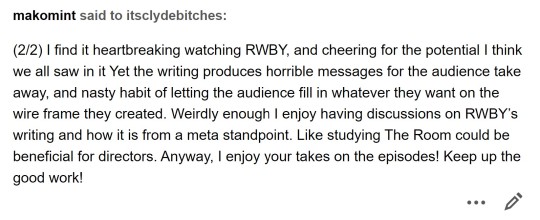
Thank you! :D
And omg this. Literally every other fandom I’m in---and SW/GoT are excellent examples---the audience is able to critique the story and (usually) still enjoy it, especially when, as you say, enjoyment can stem from the critique itself. It’s not sacrificing one for the other, an ability to go, “Well I adore X but I can also admit that Y was just beyond stupid. They’re not mutually exclusive.” There are always individual outliers and debate about what precisely is “wrong” with the story, but the general consensus when a piece’s quality goes down is that no, it’s obviously not perfect. Why in the world would you try and claim it is? I’ve just lived through this the last few months with Witcher:
I love Geralt and Jaskier’s relationship! ... but yeah I can totally get why book fans are upset at the changes, especially since it was advertised as a book-based adaptation.
Man that’s a fun and enjoyable show... though seriously, those timelines? A bit of a mess. More than a bit, actually. What were they thinking? A few, simple changes would have made that much more accessible.
So was anyone going to remind them that they straight up forgot to age Jaskier twenty-two years? Oh well, at least now we have fun immortality headcanons!
If anything, I’ve noticed that the willingness to admit when something is badly done allows for an easier segue into creativity. Because that’s what a lot of fandom is about: changing/fixing things in the canon. So when the vast majority of a community agrees that yeah, the writers screwed up there, everyone nods in solidarity, gets the frustration out of their system, and moves onto finding a way to explain away and/or work with the issue. RWBY’s fandom, by and large, doesn’t do that. Sure, there are pockets (including my own) that critique it and others (like youtube) that are more broadly critical, but there are still so many people---just enough people---insisting that the bad writing is actually genius that everyone is stuck in a loop of, “How can you see it like that?” It would be like instead of the Witcher fandom collectively spluttering over them forgetting a two decade jump in their narrative and then diving into fun explanations for that, a good chunk of the fandom instead misread and made up moments in an effort to absolve the show of any mistakes. It was perfectly done and you should be ashamed for trying to criticize it... then no one wants to come up with fun immortality headcanons because they’ve been shamed for thinking that was ever a problem in the first place. It’s because the problem exists and was acknowledged that we got the cool fandom reaction to it.
So I think about what the RWBY fandom would be like if it were a little more like Game of Thones, or Star Wars, or Witcher. If when the canon did something stupid the fandom was (mostly) unified behind their disgust of that. If, when Volume 7 randomly had one of the most heroic characters try to kill two protags simultaneously, everyone just went, “Lol yeah what was that?” And then we got to move on. “RWBY screwed up James Ironwood so let’s create something better!” Rather than what we have now, which is some fans just trying acknowledge that it was stupid and getting bombarded with replies/asks/reblogs about how wrong they are. In a really inappropriate way too. I’ve blocked a lot of people this volume because inevitably these “criticisms” move away from the text and become an attack on the person instead. When I post a critique of RWBY, and someone counters, and I counter back that they’re twisting facts and here is my proof to back that up... the next response usually starts including insults and expletives I won’t be repeating here. Which, yeah, demonstrates that a lot of people are misreading the canon---in specific, fact-based ways as opposed to “Yeah you have a point I just perceived it differently” interpretations---and they’re not interested in learning how to accurately analyse a text in a persuasive manner. So when faced with a deconstruction of their argument they fall back on insults. The “analysis” becomes based purely in emotion: I love RWBY and I’m pissed that you would dare say anything bad about it.
But being able to come together around a canon messing something up can be, oddly enough, kind of great... so it’s too bad RWBY doesn’t have more of that.
36 notes
·
View notes
Photo
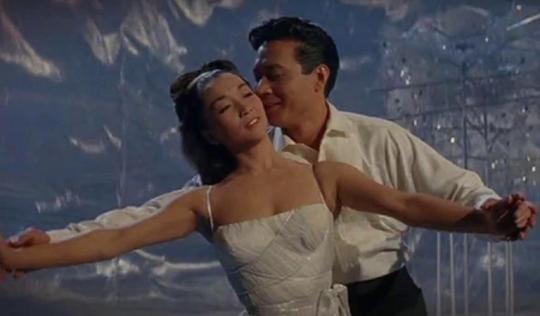
Flower Drum Song (1961)
M*A*S*H and Star Trek: The Next Generation have long been television favorites of mine. My parents introduced me to both shows – fixtures in American entertainment as Vietnamese refugee families fled to and renewed their lives in the United States. The writers of M*A*S*H, a show set during the Korean War, did not make it a secret that the show mirrored American involvement in the Vietnam War. M*A*S*H understandably focused its attention on its mostly white doctors, nurses, and non-coms. But from time to time, the show railed against war’s horrible effects on the local populace, on whose land such bloodshed is waged. In these episodes, M*A*S*H always cast Asian-American actors of varying ethnicities to play the Koreans (the value of these depictions of Koreans varies, but it is evident the all-white writing staff gave their best effort to portray Koreans in their full humanity). For a show that aired from 1971-1983, this was a radical decision as yellowface was still a widely-accepted practice in Hollywood. Star Trek, in its various incarnations, has espoused “Infinite Diversity in Infinite Combinations” from its inception. Numerous Asian-American recurring actors and guest stars of these shows have appeared in these shows I cherish (and many others) for decades. My memory flows with many of their faces and voices, even if I do not recall their names.
Adapted from C.Y. Lee’s novel of the same name, Richard Rodgers and Oscar Hammerstein II’s musical Flower Drum Song debuted on Broadway in 1958. The musical resembled nothing currently on the Great White Way, with an almost entirely all-Asian cast. Yet this musical still caused consternation. Some Asian-Americans expressed their rightful disapproval towards Rodgers and Hammerstein’s patronizing dialogue and racially insensitive characterizations. For this film adaptation by Universal (this is the only Rodgers and Hammerstein film adaptation without 20th Century Fox’s involvement), screenwriter Joseph Fields – who collaborated with Hammerstein on Flower Drum Song’s book – made major adjustments in order to stem controversy. Fields rearranged the plot and soundtrack and, most importantly, rewrote more than half of Flower Drum Song’s dialogue in order to accomplish a more respectful (if still imperfect) portrayal of all the musical’s characters.
The reworked Flower Drum Song attracted a star-studded Asian-American cast. So many in this cast are actors and actresses I have known only through their guest or recurring television roles, maybe the odd extra in a movie. To see them act in non-denigrating roles, sing, and dance in a major Hollywood studio feature film was revelatory. I admit, while viewing Flower Drum Song, feeling pangs of frustration over how Hollywood’s structural racism precluded too many in this cast from stardom. But that frustration was overcome by joy – a joy in seeing these Asian-American actors display their talents in a fashion I, even in 2020, long to witness. Though still constrained by Rodgers and Hammerstein’s stereotypical views towards people of Asian descent, Flower Drum Song is a unique cinematic experience.
Mei Li (Miyoshi Umeki) and her father, Dr. Han Li (Kam Tong) have stowed away on a ship carrying them from their home in China to San Francisco. The Lis are here to complete Sammy Fong’s (Jack Soo) request for a mail-order bride. Sammy is the slick-talking owner of the Celestial Gardens nightclub, who just so happens to be in a relationship with his principal showgirl, Linda Low (Nancy Kwan). So when the Lis arrive at the nightclub, Sammy realizes the pickle he has put himself in. In his attempts to dissolve the marriage contract, he has the Lis take up residence with the Wang family – including patriarch Wang Chi-Yang (Benson Fong), Master Wang’s sister-in-law Madame Liang (Juanita Hall, a mixed-race actor of African-American and Irish descent, in yellowface), eldest son Wang Ta (James Shigeta), and younger son Wang San (Patrick Adiarte). Secretly, Sammy has convinced Madame Liang to allow Mei Li to fall naturally in love with Wang Ta. Meanwhile, Linda is flustered with Sammy after learning of his mail-order bride plans. They separate, and she soon begins to start dating Wang Ta. Wang Ta is also the object of affection of childhood friend and seamstress, Helen Chao (Reiko Sato). If you could not guess by now, the plot of Flower Drum Song revolves around complicated relationship polygons.
Actors also appearing in this film are Victor Sen Yung as the Celestial Gardens’ emcee, Soo Yong as Madame Yen Fong (Sammy’s mother; this role was to be played Anna May Wong, but she died before production began), and James Hong as the head waiter at the Celestial Gardens. Virginia Ann Lee and Cherylene Lee play Wang San’s girlfriend and the Wang family’s youngest daughter, respectively.
In this rewriting of Flower Drum Song, screenwriter Joseph Fields, there is a greater focus on generational conflict. This film adaptation is unclear when the story takes place. But by looking at some of the technology and mannerisms, I will guess sometime after World War II, probably the 1950s. In this rendition of San Francisco’s Chinatown, first-generation Chinese immigrants live alongside the second and third generations. This mix creates a tension that permeates across the film – from how characters dress, behave in public (if they even go out in public) and private settings, and most notably romantic expectations.
The depiction of this tension is simplistic: those are not American-born uphold as many traditions as they can; those who are American-born are “Chinese” to some extent, but mostly do not think much about Chinese traditions. You are either assimilated into American society or not, says Flower Drum Song – a troublesome generalization that persists in Asian-American subgroups whose history in the U.S. is not as long as Chinese-Americans. But, in a rare instance for a Golden Age Hollywood film, Fields assures that this adaptation does not mock the first generation for not being as “American” as they could possibly be. Assimilation is on the terms of the characters, not contrived societal norms. Another anomaly in Flower Drum Song: the younger generations are assertively American, rather than offshoots of their elders. The younger generations’ unaccented English, wide range of characterizations, and their incidental Asianness (in that they do not feel the need to announce their Asian or Chinese heritage to others or to the audience) is unusual for the time in which this film was released. At the very minimum, Flower Drum Song tries to normalize Asian-American personhood. When the film fails to uphold that, it is mostly because of preexisting issues. In those instances, Fields cannot write his way outside how Rodgers and Hammerstein had already presented Flower Drum Song on the Broadway stage without compromising the duo’s artistic intent.
Many of the actors involved are not Chinese-American, but the performances are sincere, whether comedic or dramatic*. Having seen only a few of his works, I now wonder whether James Shigeta was just so naturally charming. As the go-to Asian-American romantic lead in Hollywood (not that he was cast in such a role often), his performance is seamless, appearing almost effortless. The same could also be said for Nancy Kwan, fresh off her well-publicized cinematic debut in The World of Suzie Wong (1960). An alumnus of the Royal Ballet School in London, Kwan also shows off her fancy footwork multiple times. Kwan’s dancing mastery is without question and, paired with choreographer Hermes Pan (best remembered as Fred Astaire’s principal choreographic collaborator), showcases her talents. As Mei Li, Miyoshi Umeki is slightly hamstrung by her role’s characterization. Yet as one of two actors who reprised the role they originated on the Broadway stage (along with Juanita Hall as Madame Liang; Jack Soo also appeared on Broadway, but switched roles), I was convinced by Umeki’s emotional fragility and shyness – all this for a character who has just arrived in a foreign land, bewildered by what she sees.
For the M*A*S*H fan in me, there is a special delight seeing Jack Soo and Patrick Adiarte here. Soo, best known as Det. Nick Yemana in the sitcom Barney Miller and for his distinctive face, is the natural comedian in the cast. His delivery – physically, verbally – is fantastic in this film. Adiarte, who also starred as Prince Chulalongkorn in The King and I (1956; I had not made the M*A*S*H connection when I watched that film four years ago) has a solo dance number (“The Other Generation”) in Flower Drum Song that I was floored by due to his athleticism.
As lead choreographer on Flower Drum Song, Hermes Pan directs several dancing segments for the film, each one markedly different from the other. The three most notable dance numbers are “Grant Avenue”; “Fan Tan Fannie”, “Love, Look Away” (the first two include Nancy Kwan; the other includes Reiko Sato and James Shigeta). Alongside the production design by Alexander Golitzen (1940’s Foreign Correspondent, 1960’s Spartacus); Joseph C. Wright (1942’s My Gal Sal, 1953’s Gentlemen Prefer Blondes); and Howard Bristol (1940’s Rebecca, 1959’s Anatomy of a Murder) and the costume design by Irene Sharaff (1951’s An American in Paris, The King and I), the dances are built for Technicolor – even though the film’s Chinatown looks too obviously like a soundstage construction. The abstractions in “Love, Look Away” offer the best example of this choreographic-production design-costuming collaboration. The use of empty space, props suggesting physical divisions and other people, and the enormous dreamlike atmosphere position the scene to be a cinematic manifestation of Helen’s unrequited love for Wang Ta (notably, the dancing segment uses the melody of a song not sung for Helen, but for another). In its ethereal beauty, “Love, Look Away” is a marvelous several minutes of cinematic dance – appearing in a decade where such scenes would only become more rare.
youtube
The order of the Rodgers and Hammerstein songs has been rearranged drastically from the original Broadway production; one song (“Like a God”) was dropped entirely because Universal’s executives, “feared that a number in which a Chinese American man compares himself to a god might offend audiences in the American South.” Whatever. The exclusion of “Like a God” does not affect the film much, as this adaptation of Flower Drum Song is a substantially different creature than the stage version. Owing to the performances, the two most notable songs of the musical carry over to the movie. The self-assured anthem “I Enjoy Being a Girl” (Nancy Kwan dubbed by B.J. Baker; Kwan did not protest the dubbing, despite the fact she could sing) may not contain Kwan’s singing voice, but it does boast her charismatic performance. In the film’s second half, “You Are Beautiful” has Shigeta’s and Umeki’s acting complement the former’s tender singing. But most of the songs – including two of the dance numbers when not considering the choreography (“Grant Avenue” and “Fan Tan Fannie”) – fail to leave an impression. Having Juanita Hall sing “Chop Suey” (an American Chinese dish) underlines the irony of having a non-white actor play someone of Asian descent.
In the Rodgers and Hammerstein repertoire, Flower Drum Song is among the least performed of their musicals. A 2002 revival with copious revisions remains the only production outside the musical’s Broadway and West End debuts – Flower Drum Song has not been on tour since the 1960s. It may not compare well musically, lyrically, and dramatically to Carousel, The King and I, or South Pacific, but it is miles better than the likes of State Fair. But the original production of Flower Drum Song, as written, is now considered offensive to contemporary sensibilities. As the preeminent musical theater compositional duo of their day (I would argue that they are the best in the medium’s history), Rodgers and Hammerstein – through The King and I and South Pacific and Flower Drum Song – intended through their stage musicals to break down the racial barriers that they abhorred. All three of these musicals incorporate ethnic and racial stereotypes that can never be stricken entirely from their film adaptations and subsequent musical revivals. Rodgers and Hammerstein’s intentions are well-meaning in their advocacy for cross-racial understanding, but their messages are muddled. Their work reflects a lack of racial sensitivity, at best.
The 1961 film adaptation of Flower Drum Song is the first major Hollywood studio movie to have a significant number of Asian-Americans as credited cast members since Go for Broke! (1951; a WWII film dramatizing the service of the 442nd Regimental Combat Team). Flower Drum Song ups the ante over Go for Broke! as it has an almost all-Asian cast – a feat not replicated again until The Joy Luck Club (1993) and then Crazy Rich Asians (2018). The environment in 1950s and ‘60s Hollywood excluded Asian-Americans in front of and behind the camera, so I can understand why there are only two films from that era with a majority-Asian cast. But I grade on a temporal curve. There is no excuse in modern Hollywood for the twenty-five-year separation between almost all-Asian casts. Are we to expect that the only Hollywood movies with nearly all-Asian casts/majority Asian casts in the future will be the sequels to Crazy Rich Asians?
For the longest time, Flower Drum Song was the one major Rodgers and Hammerstein musical I knew least about. I suspect, of the duo’s musicals that have been revived, it is the one in their repertoire that even self-professed theater buffs are least aware of. Being the only Rodgers and Hammerstein musical not distributed by 20th Century Fox does not help. Nor does the fact that its last home media release was on DVD in the 2000s. In 2008, Henry Koster’s Flower Drum Song was inducted into the Library of Congress’ National Film Registry. That honor marks the film as integral to the history of American cinema. As the constant writing of American cinematic history continues, as audiences become attuned to the history of non-white individuals in Hollywood, perhaps more people will see the importance of this movie. What would have happened if James Shigeta, Nancy Kwan, Miyoshi Umeki, Jack Soo, and their other co-stars were offered the same quality of opportunities of their white colleagues? We will never know. But Flower Drum Song can help the viewer envision the answer.
My rating: 7/10
^ Based on my personal imdb rating. Half-points are always rounded down. My interpretation of that ratings system can be found in the “Ratings system” page on my blog (as of July 1, 2020, tumblr is not permitting certain posts with links to appear on tag pages, so I cannot provide the URL).
For more of my reviews tagged “My Movie Odyssey”, check out the tag of the same name on my blog.
* My sister will tell you that she does not believe that anyone in this film’s love polygon has a genuine mutual love. I agree. Mei Li’s love for Wang Ta appears genuine, but that is the extent of it.
#Flower Drum Song#Henry Koster#Nancy Kwan#James Shigeta#Miyoshi Umeki#Jack Soo#Benson Fong#Juanita Hall#Reiko Sato#Patrick Adiarte#Richard Rodgers#Oscar Hammerstein II#Rodgers and Hammerstein#Joseph Fields#Russell Metty#Irene Sharaff#TCM#My Movie Odyssey
6 notes
·
View notes
Text
Self Reflection
How to communicate the complex issue of plastic pollution to a young target audience and their parents.
Isabelle Merry Self Reflection
Introduction to project
Perranporth Beach & the Plastic Pollution Problem is a website that aims to teach children about the dangers to our ecosystem if the plastic pollution problem was to continue as normal. It stemmed from a quote by the Ellen MacArthur Foundation that “By 2050, there will be more plastic in the sea than fish” (2017).
Originally a proposal for a pop-up exhibition in the Museum of Childhood, London, I adapted the outcome to fit the circumstances that Covid-19 made us face as I could not research the proposed space to the standard I wanted without visiting the museum itself. In a sense, I created an online version of this exhibition.
You are welcomed by a landing page which points to three directions, the beach, a charity page and a parent's page. On ‘the beach’, each sea creature you click on takes you through to a different problem about how plastic pollution affects the wildlife which is written out in simple terms so a young child could understand. There are also three options which click through to a solutions page because without them the website would be too pessimistic. The ‘parent’s page’ differs as it is a singular page to inform how the website works and how they can assist their child to become eco-friendly. Finally the ‘charity page’ has a list of charity websites which have more information about the plastic problem as a whole and even more ways to help.
The user experience of this website was designed and prototyped in Adobe XD which included all of the interactive elements and background illustration as well as the written information.
What went well
I identified the leading dangers of plastic pollution that coastal ecosystems faced with clear, high standard illustrations which were painted in gouache, even though I am still learning this new technique of painting. Furthermore, I learnt new, complex software to fulfill the final outcome in Adobe XD.
My research was thorough and varied between the Museum of Childhood archives, emailing charities and reading numerous articles and research papers about this topic. I reached out to potential collaborators to show support by including their website and contact info in the details of the project to bring awareness of the positive work they’re doing.
My development was well experimented as I went through many ideas and sketches to get to the final outcome of the website. I adapted to the change of the course becoming solely online and showed my development and ideas clearly over webcam tutorials when it would have been optimal to show my initial ideas in person. I meticulously planned the final outcome which can be seen by the animation proposal and the flat plan.
I have included a wide range of ethnicities within my final illustrations as this reflects my dissertation research about inclusivity for all within children's books. Especially with the topic, it is important that children feel as one with no prejudice towards each other as the fight against climate change and plastic pollution impacts us all.
The outcome of the project speaks volumes to the degree of effort I put into fully investigating my desired area of environmental education and consequently, my passion for children's illustration is embedded into the website.
What I would have done differently
My inexperience with Adobe XD and user experience design could have potentially limited the complexity of the prototype I wanted to create. Additionally, if I have factored in more time and funds, I would have collaborated with an actual web developer/agency to bring my prototype to screen for the public.
Although I assiduously planned the designing aspect for the final website, I did not factor in room for error in the final illustrations within the last few days and underestimated how long and complex the building of a website would take.
I would have liked to have tested the website on a focus group of young children to see how they reacted to the website and how I could have changed to ensure they are fully engaged and become motivated behind the project.
Finally, I would have liked to have used more sustainable materials and means of product to not contradict the message of the project. This could have been using recycled paper with less plastic film on the packaging and using biodegradable pens whilst I was sketching.
2 notes
·
View notes
Photo
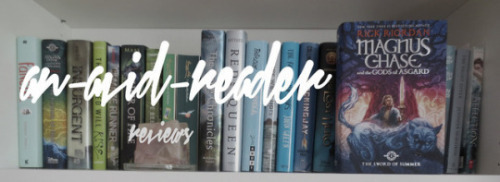
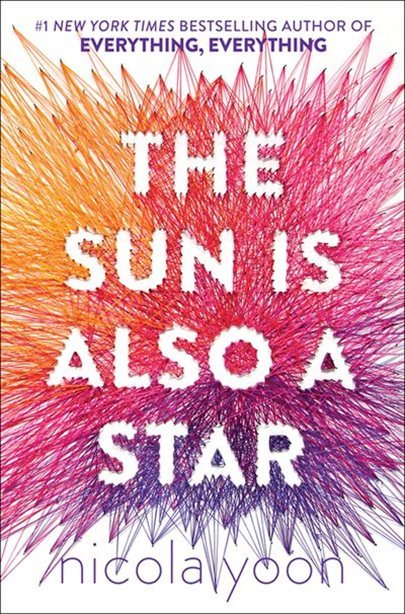

The Sun is Also a Star - Nicola Yoon
my rating: 3.5/5
Natasha is an undocumented citizen, her family moved from Jamica to America when she was a little girl. For the most part, her family has laid low and stayed out of trouble until one day, her father receives a DUI, which means that they have been discovered. Natasha and her family have less than a day to leave the US, before they get in more trouble. Daniel is Korean-American. His immigrant parents want the best for their sons, that means going to school and living a better life. But Daniel’s interests lie elsewhere—both in career and what it means to fall in love. When Daniel and Natasha cross paths, their differences may seem incompatible...but after all, don’t opposites attract?
Link to Goodreads || Spoiler-free review below
Let me start off by saying that I’m still unsure about my rating; I’m slightly conflicted with my opinions on this book. I will say that in terms of the development of the story, I prefer it to Everything, Everything, which is Yoon’s debut novel. Both are love stories in very extreme/unique situations and diverse characters. Yoon’s writing is easy to read and eloquent, in my opinion--I can definitely see that it improved in The Sun is Also a Star. Bonus: love the title and the cover of the book.
This book is supposedly written from the point of view of the universe, which probably explains why we switch from first person to third person. For the most part, I didn’t really notice it, and I could distinguish Daniel and Natasha’s chapters (most of the book is from their point of view). However, there was one ‘chapter’ where it was just super confusing, unfortunately I don’t remember which one it was! I found that to be interesting though--and I wonder how different the book would be if we had it all in third person as opposed to switching back and forth.
For the characters, I love the diversity we see, and how there was inspiration from Yoon’s own relationship. I agree with her reasoning--there needs to be more portrayal of POC in books, movies, shows, etc. That being said, I found that there were A LOT of stereotypes. Don’t get me wrong, stereotypes exist because they are a version of someone’s story (as stated by Chimamanda Ngozi Adichie), but there were some that made me dislike Natasha’s character. It wasn’t really the racial stereotypes that bothered me, but rather the science stereotype. At one point, Natasha and Daniel get on the topic of religion and god, and she plays the “science is all we need” card. My issue is that science and religion can coexist (as a current biochem student who went to a catholic school with amazing and unbiased science teachers, I can attest that they can indeed coexist!). The thing is religion is based on belief--that belief can stem from comfort, a reason to be alive/to be good, something to confine in, morals, etc. Science is based on facts and evidence. You don’t believe in science, it’s factual, but you can choose to believe (or not believe) in religion--either is fine, regardless of religion. I’ve realized that the whole science vs religion story is not for me, it just makes me angry. There was a good chunk of the middle part of the book where Natasha is less “extreme” about her views, but then she hit me with that “science is all we need” and I just became annoyed.
Daniel was more reasonable in my opinion. I personally haven’t met anyone that follows his story; where he wants to pursue a creative career but his parents want him to become a doctor (as an immigrant myself, this isn’t something that I can relate to either). Again Natasha comes in and says that he’ll be a starving artist, which just annoyed me again! Yes, we need scientists and engineers, but creative people--authors, film directors, actors, etc. are necessary to keep our society sane. Furthermore, some careers require the cooperation of the arts and the sciences, like architecture. So once again, let’s stop pinning science against the arts when we need them both (also lowkey organic chemistry and biochemistry are arts but that’s just my opinion). Actually maybe we need to stop putting science on this pedestal from time to time *sips tea*.
Okay so stereotypes and annoyances aside, I loved the progression of their love story. I also love that the questions to “fall in love” were consistent throughout the whole story. I appreciated that Yoon mentioned when people were staring at them, as an interracial couple. I think that there is still a lot of racism embedded in our society, not just white people against other races, but other situations like this where it was Korean vs Jamaican. I also liked that Charlie, Daniel’s brother, actually rejected his culture--I think that was his version of coping with an identity crisis, and I believe that there are others like him who do this in order to fit it, which actually saddens me a little bit. I think these small, but important details capture the reality of being a non-“natural” citizen/immigrant/not being white. I can’t say I’ve read many books like this, so it definitely stands out against other coming of age books, and YA romance books.
I really liked the sprinkle of knowledge along the way. For example, at one point, the universe explains to us the multiverse (which is a pretty simple explanation that is accurate and easy to follow). One thing that sort of surprised me was the juxtaposition between the tone of the book (which I guess in some ways is a little dark) and the cover, and then there’s one character that has suicidal thoughts. It literally came out of nowhere. And then there’s the progression of the language that progresses. I would never expect to read "...graduates summa cum laude..." in such a colourful book, but here we are. I’ve never heard that phrase until last year in university, and now it seems that it pops up everywhere (o.O)
The book takes place over the course of a few hours, yet it didn’t seem to drag on. We hop from one adventure to another and we get to see Natasha and Daniel’s love story develop, even though their love is set up to be doomed from the beginning. Yet, they bump into each other and end up finding each other in the big city of NYC. This book was super interesting from a story-telling point of view, even if I wasn’t a huge fan of some of the characters. I think that’s why, at the end of the day, I’m sort of distraught by my rating because the story itself wasn’t super cringey to me and I can clearly see that Yoon’s writing developed from one book to another, but the stuff I didn’t like are prominent and crucial to the story...well except maybe the epilogue which I felt was just thrown in there to try to satiate the book but it felt unnecessary.
If you’ve read this book, I’d love to hear what are your thoughts--did you enjoy this book or was it overhyped? (and if you’ve seen the adaptation, is it worth it?)
Thank you for reading my review, I hope you are having a pleasant day, wherever you are in the world!
~ Cassandra / an-avid-reader
#mine#review#book review#books#reading#booklr#the sun is also a star#nicola yoon#book#bookworm#ya#ya novel#diversity
2 notes
·
View notes
Text
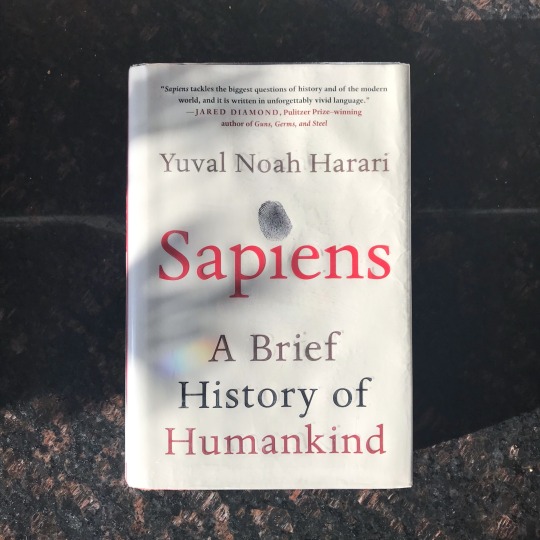
#finishedbooks Sapiens by Yuval Noah Harari. Got this from the library after several recommendations. It is as the subtitle suggests, a brief history of humankind from the big bang to speculation on the future of an a-mortal cyborg human being. He goes about this dividing our history into four parts: The Cognitive, The Agricultural Revolutions, unification of humankind, and The Scientific Revolution. In this he shows how humans have thrived thru mutual cooperation in large groups which was achieved through our collective imagination in believing in things that don't exist through mutual trust such as country borders, economic and political systems, various gods, and human rights all converging toward an interdependence. Pointing out the stumbling blocks on the way such as the ills of the agricultural revolution and later the scientific revolution stemming from European thought suggesting that technology has come to the point of ending the species as we know it. With that and coming in at just over 400 pages it doesn't go deep into specifics rather than an overview that is well written in the connections he makes but doesn't contribute anything new. Really prior to this Visa issue, in Tokyo I pretty much confined my reading to art history/theory, foreign literature, and random 20th century history. But since being back in the US (with a lot of free time) relying on the library and finding a wider availability of books in English at cheaper prices I have been stretching myself so now having read random topics from astrophysics, theology, political science, geology, all sorts of theories, mythology, etc I kind of felt reading this would be redundant and it was. I would have gotten way more out of this prior to my visa issue, but if not up on this (which I wasn't 2 years ago) this is a solid read for one to then go and choose something like game theory to really dive into. I have come to the point instead of reading topical works on say Darwin, I'd rather just read Darwin and cut out other interpertations to distill my own. Also, relates to being back in the US as everyone presses me to listen to Podcasts which I refuse for the same reason. Structurally for the most part the ones I was forced to listen to begin with self promotion, then they start getting into some facts but constantly digress with this weird American mix of cynicism and sarcasm underlying a rather forceful liberal reactionary view (it does have to entertain and I am definitely not conservative but it is easy and narrow), and usually ends with instructions on what social media likes I should give them and what else to check out, etc. For myself and the way I prioritize my time, I skip out on this accessible second-third-fourth hand information and would just rather read the source material myself. With that there is nothing wrong with accessibility and a lot of people truly don't have the time, but I do and maximize it. Because the fun in reading for myself is rattling the ideas around in my brain compared to everything I have read, adapting it to my perspective, etc etc and just seeing what I can come up with. Also I feel it is my responsibility if I am going to call myself an artist, creator, or story teller to take the time and go deeper so I can perhaps show you something you maybe haven't seen or heard of before...otherwise what good is my perspective if I only indulge in Marvel films or Podcasts like everyone else? I can always see in an artist who aesthetically hasn't gone further than basquait, sonically further than 90s hip-hop, and say in film gone no further than 70s American cinema... the results are usually uninteresting but there is more to it than that.
1 note
·
View note
Text
@umbreange
wow you’re really just drinking the misogyny juice today aren’t ya... I get it, you’re upset because Gwen Stacy is more popular and is included in more media than MJ but dial down your rampant hatred of a female character for like 5 seconds there bud
Please.
Please.
Please.
Get the Hell of your high horse.
Criticising female characters isn’t sexist or misogynistic.
Calling a female character a bad character isn’t misogynistic.
Hating a female character isn’t misogynistic.
Comparing two characters is not misogynistic, regardless of the genders involved, because people have been comparing characters since time immemorial. Like Jesus aren’t there enough ‘Who’s win this fight’ threads everywhere to prove this? Isn’t Marvel and DC’s rivalry since the 1960s proof of this!
If you are arguing that there must be a specially enforced rule to be applied specifically to female characters then if anything that is the thing that is problematic.
Why on Earth should there be an exception.
Equality is not graded on a curve. At least not when it comes to fictional characters.
I get it, you’re upset because Gwen Stacy is more popular and is included in more media than MJ but dial down your rampant hatred of a female character for like 5 seconds there bud
*Attempts to restrain laughter*
I think I just might have found a Gwen Cultist.
You need to be on that special kind of delusion juice if you think Gwen Stacy is
a) More popular
b) Included in more media than Mary Jane
So let’s break it down.
Mary Jane was literally more popular that Gwen Stacy in the 1960s, to the point where Stan Lee and John Romita Senior themselves admitted she always stole the scene from Gwen if they were ever in the same scene.
Mary Jane was so popular in comparison to Gwen in the 1970s Gerry Conway literally killed Gwen so Mary Jane could adopt her role in the series. Also Gwen Stacy was so unpopular people didn’t widely care that much that she died. In fact even when a identical clone of her was introduced in the same decade she went unused thereafter except for a few stories about Gwen Stacy’s death. That is how much people didn’t want to use Gwen Stacy.
Mary Jane was so popular in the 1980s fans were calling for her and Peter to get married which persuaded Stan Lee himself to make it happen, both in the newspapers, the comic books and in real life in a ceremony at Shea Stadium where he himself married the actors playing the characters.
Mary Jane was so popular in the 1990s Marvel made a joke about it in 101 Ways to End the Clone Saga.
Mary Jane was so popular in the 2000s her death was one of the major reasons Spider-Man sales cratered in the early 2000s which in turn contributed to the launching of Ultimate Spider-Man as a potential substitute title, in which MJ was shocker there from the first issue onwards. Many fans consequently left the title after One More Day.
Mary Jane was so popular in 2010s that fans actively requested she be turned into a Marvel action figure which led to it eventually happening with a great big stamp on the box stating the fans demanded this specific figure that hard.
Mary Jane is so popular that a mini-series out of continuity about her still being married to Spider-Man was THE highest selling series during Secret Wars 2015 sans the main book.
Mary Jane is so popular that Marvel repeatedly spiked sales between 2008-2018 by teasing her appearing or the chance for her and Spider-Man to reconcile.
Meanwhile Gwen Stacy is so popular that she...has had none of that...at all...ever...across 50 years....
But lets move onto media appearences.
*Glances over Wikipedia for less than 2 minutes* Oh look...Mary Jane has appeared in more media than Gwen and Spider-Gwen combined.
Gwen having appeared in maybe 5 or 6 video games ever. MJ having appeared in almost every Spider-Man video game ever.
Gwen has appeared in 4 movies.
Some version of Mary Jane has appeared in 5 movies, will appear in a sixth this year, was intended to appear in another one in 2014 and had literally two versions in the film from 2018. Maybe three if Em Jay from Earth -65 was included in the film, I might’ve missed that.
Lets move onto novels. Outside of flashbacks to her death or holograms or stuff like that or novelizations of films, a living non-flashback actual Gwen Stacy as of April 2019 has appeared in exactly ONE Spider-Man novel. Mary Jane meanwhile has appeared in the vaaaaaaaaaaaaaaaaaaaaaaaaast majority of all Spider-Man novels.
How about audio stories. Well there are no original Spider-Man audio stories, just adaptations of print works. And of those there are only FOUR featuring Spider-Man that Mary Jane never shows up in. One of those is a Deadpool story, another is a New Avengers story and the third was an Avengers vs. X-Men story. The only other one she didn’t appear in omitted all of Spider-Man’s normal life stuff and was made in the 1970s. In every other audio story about Spider-Man ever MJ has appeared.
Now let’s talk TV shows. Now let’s be fair here because MJ has not appeared in EVERY Spider-Man TV show ever. But as of April 2019 there is only ONE Spider-Man TV show to feature Gwen Stacy and not Mary Jane. And even that one gave her a brief off-screen cameo of sorts. Gwen has appeared in just four Spider-Man TV shows and MJ has appeared in SIX. Gwen by the way only briefly appeared in 2 of those, she was not a regular character. MJ meanwhile was a regular character in four out of the six TV shows she’s appeared in.
And here is the best part. In most of those TV shows, she replaces Gwen’s role.
Even in the Spider-Man 1967 cartoon, THE FIRST piece of media Spider-Man has ever been adapted into, they not only based an episode on an MJ centric story but featured Gwen’s Dad but simply omitted Gwen herself, making Captain Stacy MJ’s uncle instead.
Because Gwen is just that popular don’t you see.
Now let’s talk about toning down that ‘rampant hatred’.
First off, this is my blog so I will do whatever the flying fuck I want here.
Second of all you are pathetically implying my disdain for Gwen stems from the mere fact that she is female.
Not only is this a massive and dangerous presumption on your part but it’s also untrue.
I have disdain for Gwen because as my post made clear, she’s overrated.
She’s the most overrated Marvel character ever.
Because she was a bad character with no redeeming qualities to her who is nevertheless treated as though she was a magical saint or this really deep compelling and complex character unfairly axed off.
And she wasn’t. Even the majority of re-imagined versions of her after her death are not particular well rendered characters. The best ones would be the movie Spider-Gwen version, the version from SMLMJ and her clone.
That’s how lame Gwen Stacy is. She’s so lame her clone has more substance to her!
P.S. You wanna talk about misogyny? Maybe remind me of the time an actress playing Mary Jane went on national TV and called Gwen Stacy a slut.
Or perhaps of the solo MJ series which actively demonized Gwen Stacy.
Or of the time the actress playing Gwen in a movie and the director of said movie spun a false narrative about how MJ loved Peter and Gwen loved Spider-Man to big up MJ over Gwen.
34 notes
·
View notes
Note
tbh i don’t like s&s and i think my issues mostly stem from the adaptations, i never like emma thompson as eleanor, not only from the book and historical accuracy pov but also cause she was producing it and rewriting a role so she could play the main character as well feels very self centered. i also don’t feel any adaptation and to an extent the book handle marianne falling in love with brandon very well, it feels very rushed especially as they are both main characters
As far as I can find out, Thompson had no production credit for the film, though she did work closely with producer Lindsay Doran, who asked her to write it. She’d never written a screenplay before, and took five years to write the script for Sense and Sensibility. Director Ang Lee and the production company Columbia both pushed Thompson to take on the role of Elinor, despite her initial suggestions of other actresses and resistance to taking the part due to her age, which Lee then altered for the character. It sounds like Lee did a lot of the work to make that casting happen, so I’m not sure where you heard that Thompson wrote the part for herself in mind. Not to say that Academy Awards are the be-all and end-all of cinematic virtue, ‘cause sometimes they’re utter jokes, but particularly before the whole for-your-consideration trend of heavily campaigning for Oscar glory by production companies which really took off around the late 90s (and in particular for Best Picture/Actor/Director noms,) for a mid-90s English period piece to gain an award for writing seems to tell me that there must have been some merit in the script. Luvvie culture is alive and well, don’t get me wrong, and is responsible for a huge portion of the actors of Thompson’s generation being who and what they are, but Thompson seems particularly aware of it, now, and is just having fun.
youtube
I’m not saying you gotta like her, or the adaptation; I’m just saying the reasons for disliking it seem mistaken about Thompson’s level of involvement in her own casting, as well as how much time is spent developing the Marianne/Brandon romance. In the book, it’s way less present than in any modern adaptation.
50 notes
·
View notes
Text
IXD301
Where does content come from?
This week was all about where content comes from and also who owns that content. We looked at sources of content, for example:
Client Supplied
Self Generated
User Generated Content
APIs
Etc.
We also identified different sources of imagery, etc., for example Illustration, Icons, Photography… from places like:
Illustration
iStockPhoto
Shutterstock
Getty
Copyright
What is copyright?
Copyright (or author’s right) is a legal term used to describe the rights that creators have over their literary and artistic works. Works covered by copyright range from books, music, paintings, sculpture, and films, to computer programs, databases, advertisements, maps, and technical drawings.
Copyright touches our lives on a daily basis. Whether you read a book, watch a film, transfer music, or take a photo, copyright issues are ever-present.
Copyright law aims to balance the interests of those who create content, with the public interest in having the widest possible access to that content. WIPO administers several international treaties in the area of copyright and related rights.
There are two types of rights under copyright:
economic rights, which allow the rights owner to derive financial reward from the use of their works by others; and
moral rights, which protect the non-economic interests of the author.
Most copyright laws state that the rights owner has the economic right to authorise or prevent certain uses in relation to a work or, in some cases, to receive remuneration for the use of their work (such as through collective management). The economic rights owner of a work can prohibit or authorise:
its reproduction in various forms, such as printed publication or sound recording;
its public performance, such as in a play or musical work;
its recording, for example, in the form of compact discs or DVDs;
its broadcasting, by radio, cable or satellite;
its translation into other languages; and
its adaptation, such as a novel into a film screenplay.
Examples of widely recognised moral rights include the right to claim authorship of a work and the right to oppose changes to a work that could harm the creator's reputation.
Creative Commons
Creative Commons (CC) is an American non-profit organisation devoted to expanding the range of creative works available for others to build upon legally and to share. The organisation has released several copyright-licenses, known as Creative Commons licenses, free of charge to the public.
These licenses allow creators to communicate which rights they reserve and which rights they waive for the benefit of recipients or other creators. An easy-to-understand one-page explanation of rights, with associated visual symbols, explains the specifics of each Creative Commons license.
Creative Commons licenses do not replace copyright but are based upon it. They replace individual negotiations for specific rights between copyright owner (licensor) and licensee, which are necessary under an "all rights reserved" copyright management, with a "some rights reserved" management employing standardised licenses for re-use cases where no commercial compensation is sought by the copyright owner. The result is an agile, low-overhead and low-cost copyright-management regime, benefiting both copyright owners and licensees.
Portfolio Website Content - So Far...
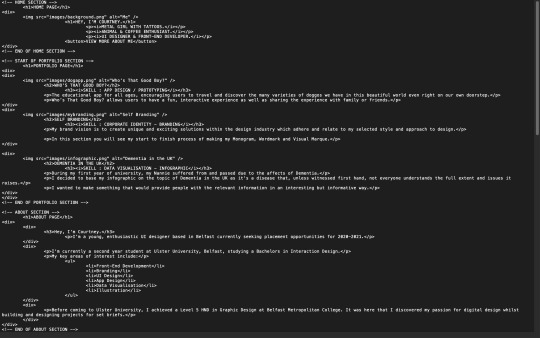
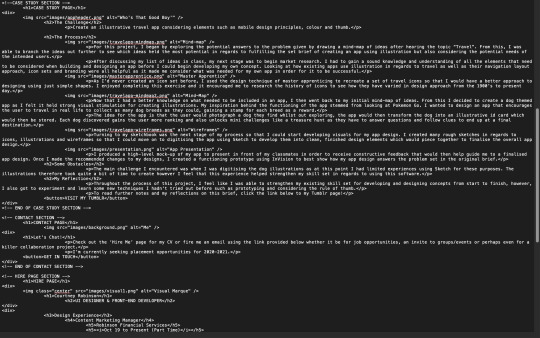

<!-- HOME SECTION -->
<h1>HOME PAGE</h1>
<div>
<img src="images/background.png" alt="Me" />
<h1>HEY, I'M COURTNEY.</h1>
<p><i>METAL GIRL WITH TATTOOS.</i></p>
<p><i>ANIMAL & COFFEE ENTHUSIAST.</i></p>
<p><i>UI DESIGNER & FRONT-END DEVELOPER.</i></p>
<button>VIEW MORE ABOUT ME</button>
</div>
<!-- END OF HOME SECTION -->
<!-- START OF PORTFOLIO SECTION -->
<h1>PORTFOLIO PAGE</h1>
<div>
<div>
<img src="images/dogapp.png" alt="Who's That Good Boy?" />
<h2>WHO'S THAT GOOD BOY?</h2>
<h3><i>SKILL : APP DESIGN / PROTOTYPING</i></h3>
<p>The educational app for all ages, encouraging users to travel and discover the many varieties of doggos we have in this beautiful world even right on our own doorstep.</p>
<p>Who’s That Good Boy? allows users to have a fun, interactive experience as well as sharing the experience with family or friends.</p>
</div>
<div>
<img src="images/mybranding.png" alt="Self Branding" />
<h2>SELF BRANDING</h2>
<h3><i>SKILL : CORPORATE IDENTITY - BRANDING</i></h3>
<p>My brand vision is to create unique and exciting solutions within the design industry which adhere and relate to my selected style and approach to design.</p>
<p>In this section you will see my start to finish process of making my Monogram, Wordmark and Visual Marque.</p>
</div>
<div>
<img src="images/infographic.png" alt="Dementia in the UK" />
<h2>DEMENTIA IN THE UK</h2>
<h3><i>SKILL : DATA VISUALISATION - INFOGRAPHIC</i></h3>
<p>During my first year of university, my Nannie suffered from and passed due to the affects of Dementia.</p>
<p>I decided to base my infographic on the topic of Dementia in the UK as it's a disease that, unless witnessed first hand, not everyone understands the full extent and issues it raises.</p>
<p>I wanted to make something that would provide people with the relevant information in an interesting but informative way.</p>
</div>
</div>
<!-- END OF PORTFOLIO SECTION -->
<!-- ABOUT SECTION -->
<h1>ABOUT PAGE</h1>
<div>
<div>
<h3>Hey, I'm Courtney.</h3>
<p>I’m a young, enthusiastic UI designer based in Belfast currently seeking placement opportunities for 2020-2021.</p>
</div>
<div>
<p>I'm currently a second year student at Ulster University, Belfast, studying a Bachelors in Interaction Design.</p>
<p>My key areas of interest include:</p>
<ul>
<li>Front-End Development</li>
<li>Branding</li>
<li>UI Design</li>
<li>App Design</li>
<li>Data Visualisation</li>
<li>Illustration</li>
</ul>
</div>
<div>
<p>Before coming to Ulster University, I achieved a Level 5 HND in Graphic Design at Belfast Metropolitan College. It was here that I discovered my passion for digital design whilst building and designing projects for set briefs.</p>
</div>
</div>
<!-- END OF ABOUT SECTION -->
<!--CASE STUDY SECTION -->
<h1>CASE STUDY PAGE</h1>
<div>
<img src="images/appheader.png" alt="Who's That Good Boy'" />
<h2>The Challenge</h2>
<p>Create an illustrative travel app considering elements such as mobile design principles, colour and thumb.</p>
<h2>The Process</h2>
<img src="images/travelapp-mindmap.png" alt="Mind-map" />
<p>For this project, I began by exploring the potential answers to the problem given by drawing a mind-map of ideas after hearing the topic “Travel”. From this, I was able to branch the ideas out further to see which ideas held the most potential in regards to fulfilling the set brief of creating an app using illustration but also considering the potential needs of the intended users.</p>
<p>After discussing my list of ideas in class, my next stage was to begin market research. I had to gain a sound knowledge and understanding of all the elements that need to be considered when building and designing an app before I could begin developing my own concept. Looking at how existing apps use illustration in regards to travel as well as their navigation layout approach, icon sets and branding were all helpful as it made me consider what was needed for my own app in order for it to be successful.</p>
<img src="images/masterapprentice.png" alt="Master Apprentice" />
<p>As I’d never created an icon set before, I used the design technique of master apprenticing to recreate a set of travel icons so that I would have a better approach to designing using just simple shapes. I enjoyed completing this exercise and it encouraged me to research the history of icons to see how they have varied in design approach from the 1900’s to present day.</p>
<img src="images/travelapp-mindmap2.png" alt="Mind-Map" />
<p>Now that I had a better knowledge on what needed to be included in an app, I then went back to my initial mind-map of ideas. From this I decided to create a dog themed app as I felt it held strong visual stimulation for creating illustrations. My inspiration behind the functioning of the app stemmed from looking at Pokemon Go. I wanted to design an app that encourages the user to travel in real life to collect as many dog breeds as they could, gaining a stamp for each breed as a reward.</p>
<p>The idea for the app is that the user would photograph a dog they find whilst out exploring, the app would then transform the dog into an illustrative id card which would then be stored. Each dog discovered gains the user more ranking and also unlocks mini challenges like a treasure hunt as they have to answer questions and follow clues to end up at a final destination.</p>
<img src="images/travelapp-wireframes.png" alt="Wireframes" />
<p>Turning to my sketchbook was the next stage of my process so that I could start developing visuals for my app design. I created many rough sketches in regards to icons, illustrations and wireframes so that I could move on to digitising the app using Sketch to develop them into clean, finished design elements which would piece together to finalise the overall app design.</p>
<img src="images/presentation.png" alt="App Presentation" />
<p>I produced a high-level mock-up of my app to present in front of my classmates in order to receive constructive feedback that would then help guide me to a finalised app design. Once I made the recommended changes to my designs, I created a functioning prototype using InVision to best show how my app design answers the problem set in the original brief.</p>
<h2>Some Obstacles</h2>
<p>The main challenge I encountered was when I was digitising the dog illustrations as at this point I had limited experiences using Sketch for these purposes. The illustrations therefore took quite a bit of time to create however I feel that this experience helped strengthen my skill set in regards to using this software.</p>
<h2>My Reflection</h2>
<p>Throughout the process of this project, I feel like I was able to strengthen my existing skill set for developing and designing concepts from start to finish, however, I also got to experiment and learn some new techniques I hadn't tried out before such as prototyping and considering the rule of thumb.</p>
<p>To read further notes and my reflections on this brief, click the link below to my Tumblr page!</p>
<button>VISIT MY TUMBLR</button>
</div>
<!-- END OF CASE STUDY SECTION -->
<!-- CONTACT SECTION -->
<h1>CONTACT PAGE</h1>
<img src="images/background.png" alt="Me" />
<div>
<h1>Let's Chat!</h1>
<p>Check out the ‘Hire Me’ page for my CV or fire me an email using the link provided below whether it be for job opportunities, an invite to groups/events or perhaps even for a killer collaboration project.</p>
<p>I’m currently seeking placement opportunities for 2020-2021.</p>
<button>GET IN TOUCH</button>
</div>
<!-- END OF CONTACT SECTION -->
<!-- HIRE PAGE SECTION -->
<h1>HIRE PAGE</h1>
<div>
<img class="center" src="images/visual1.png" alt="Visual Marque" />
<h1>Courtney Robinson</h1>
<h2>UI DESIGNER & FRONT-END DEVELOPER</h2>
</div>
<div>
<h3>Design Experience</h3>
<h4>Content Marketing Manager</h4>
<h5>Robinson Financial Services</h5>
<h5><i>Oct 19 to Present (Part Time)</i></h5>
<p>Roles & responsibilities:</p>
<ul>
<li>To expand the company’s digital footprint and brand awareness</li>
<li>To take full responsibility of the companies digital marketing strategies including use of social media, email campaigns, blogs, SEO (to name a few) to increase digital lead generation</li>
<li>To provide administrative support to the Company Director</li>
<li>To perform other incidental and related duties as required and assigned</li>
<li>Responding promptly to customer enquiries in person or via telephone & email</li>
<li>Working to tight deadlines</li>
</ul>
<h4>Freelance Designer</h4>
<h5>Courtney Robinson Designs</h5>
<h5><i>June 17 to Present (Part Time)</i></h5>
<p>Roles & responsibilities:</p>
<ul>
<li>Responding promptly to customer enquiries in person or via telephone & email</li>
<li>Create visuals based on customer requests (print or digital)</li>
<li>Strong use of Adobe Creative Suite and Sketch Software</li>
<li>Daily reports on the status of pending work</li>
<li>Good general IT skills</li>
<li>An ability to communicate design ideas clearly</li>
<li>Working to tight deadlines</li>
</ul>
</div>
<div>
<h3>Education</h3>
<h4>Interaction Design (BDes)</h4>
<p>Ulster University, Belfast</p>
<p>Sep 18 - May 22</p>
<p>Result: Pending</p>
<h4>Graphic Design (QCF)</h4>
<p>(EDEXCEL BTEC Level 5 HND Diploma)</p>
<p>Belfast Metropolitan College, Belfast</p>
<p>Sep 15 - May 17</p>
<p>Result: Pass</p>
<h4>OCN NI Level 2 Award in Social Media (QCF)</h4>
<p>Belfast Metropolitan College, Belfast</p>
<p>Sep 15 - May 17</p>
<p>Result: Achieved</p>
</div>
<div>
<h3>Design Skills</h3>
<ul>
<li>Sketch</li>
<li>Adobe Creative Suite</li>
<li>HTML/CSS</li>
<li>InVision</li>
<li>Branding</li>
<li>Digital Marketing</li>
<li>Web & App Design</li>
<li>Data Visualisation</li>
</ul>
</div>
<div>
<button>DOWNLOAD PDF</button>
</div>
<!-- END OF HIRE PAGE SECTION -->
Sources:
https://www.wipo.int/copyright/en/
https://creativecommons.org/
1 note
·
View note